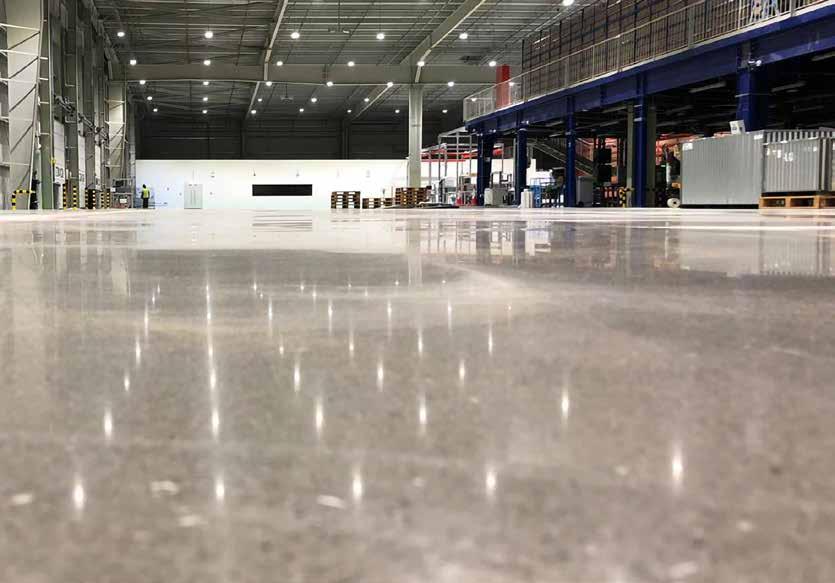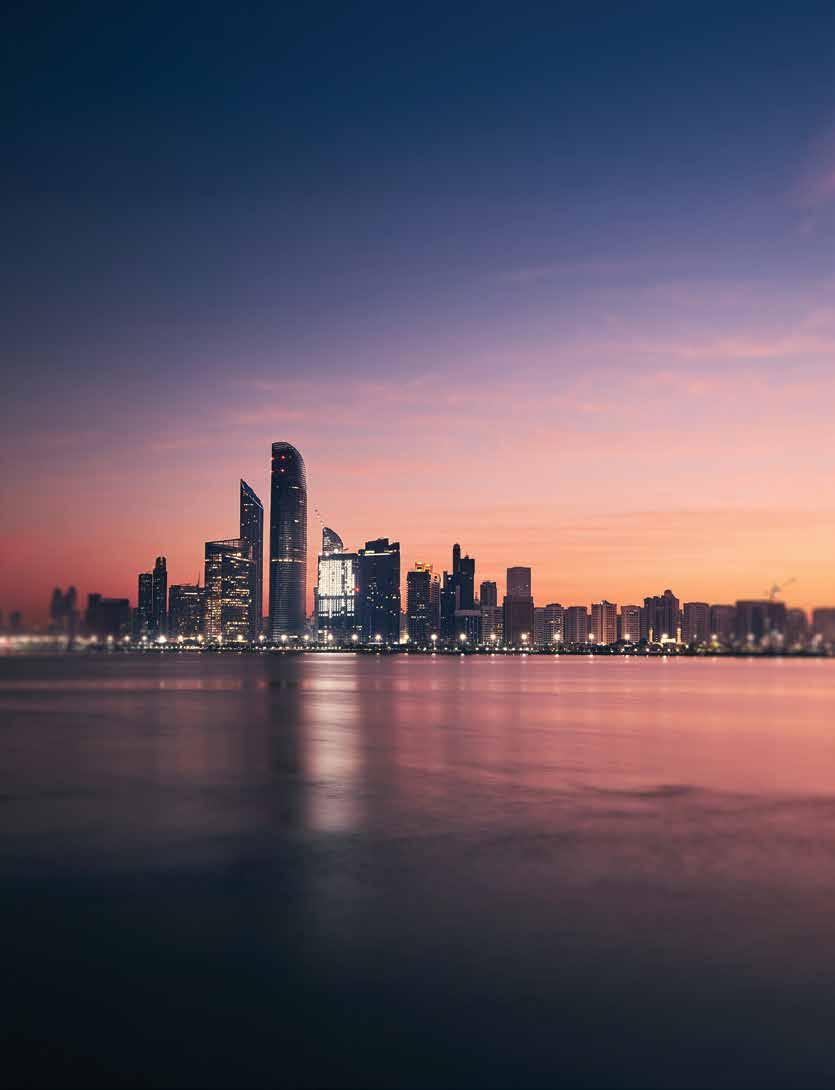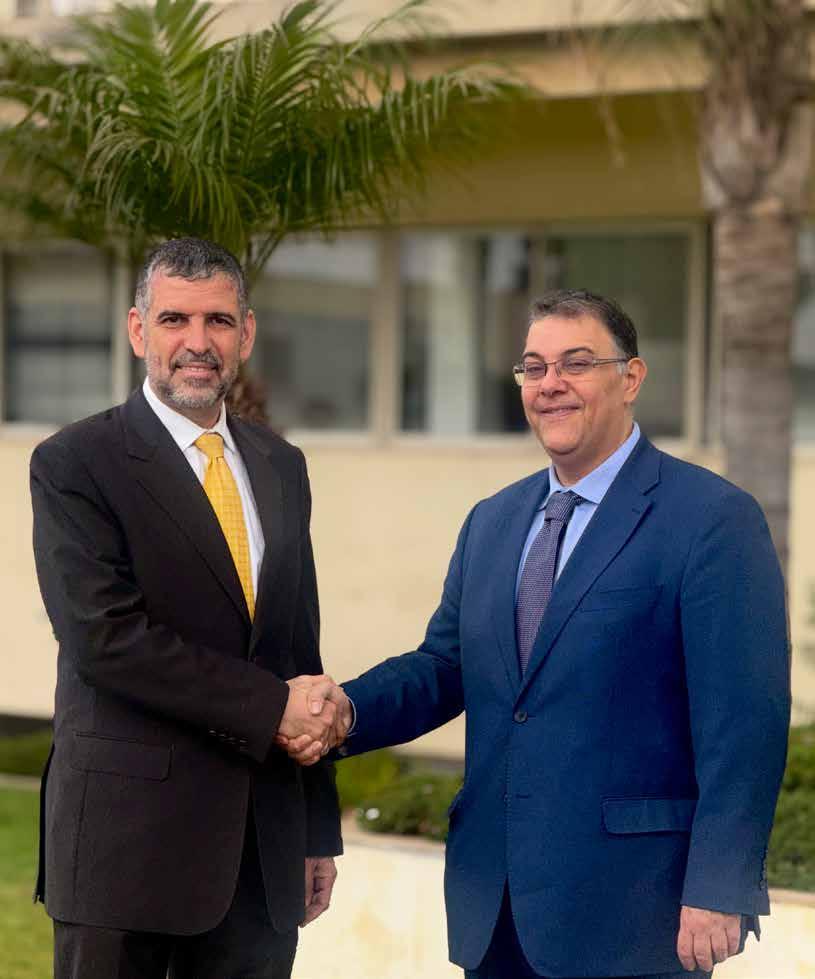
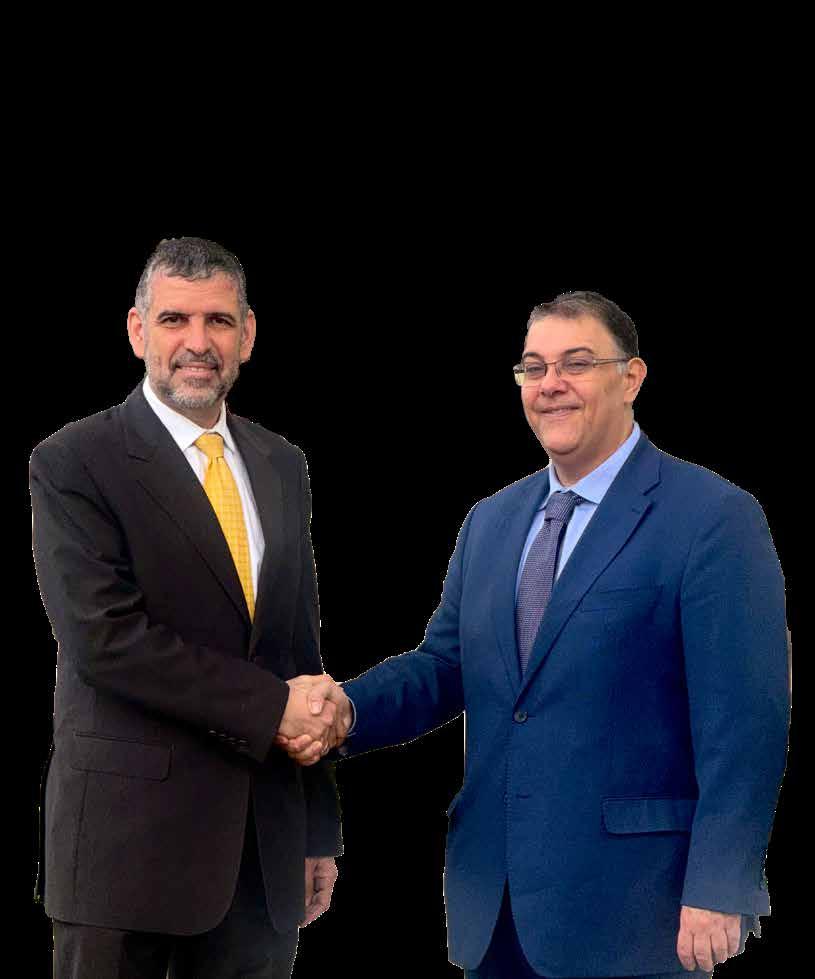
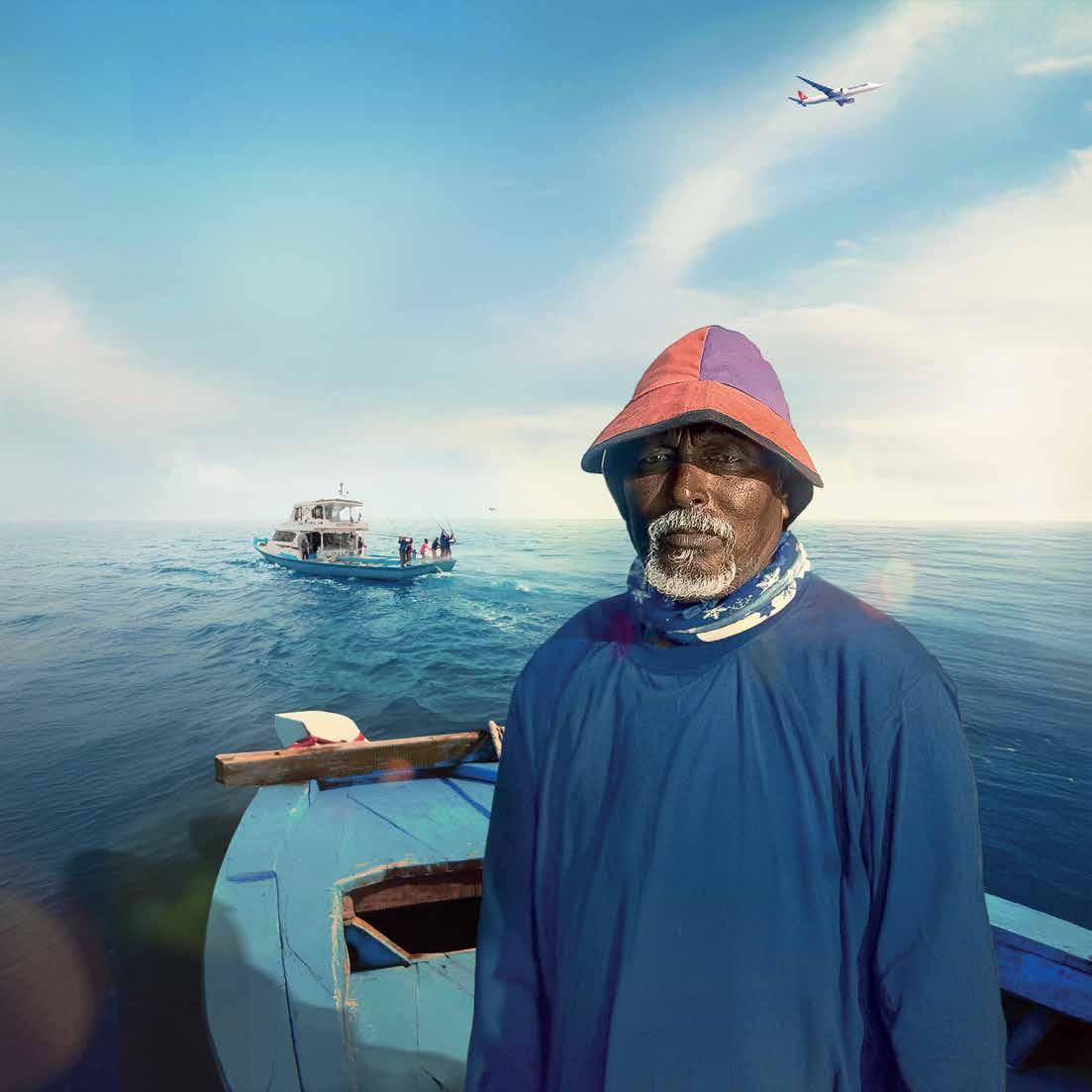






Full offering
- Full range vehicles with the most advanced technologies
- Highly customized product driven by market needs and optimized Total Cost of Ownership
High capillarity of aftersales
- Repair and Maintenance contracts and competitive warranty conditions
- Origin 100% IVECO Parts and a widespread network coverage
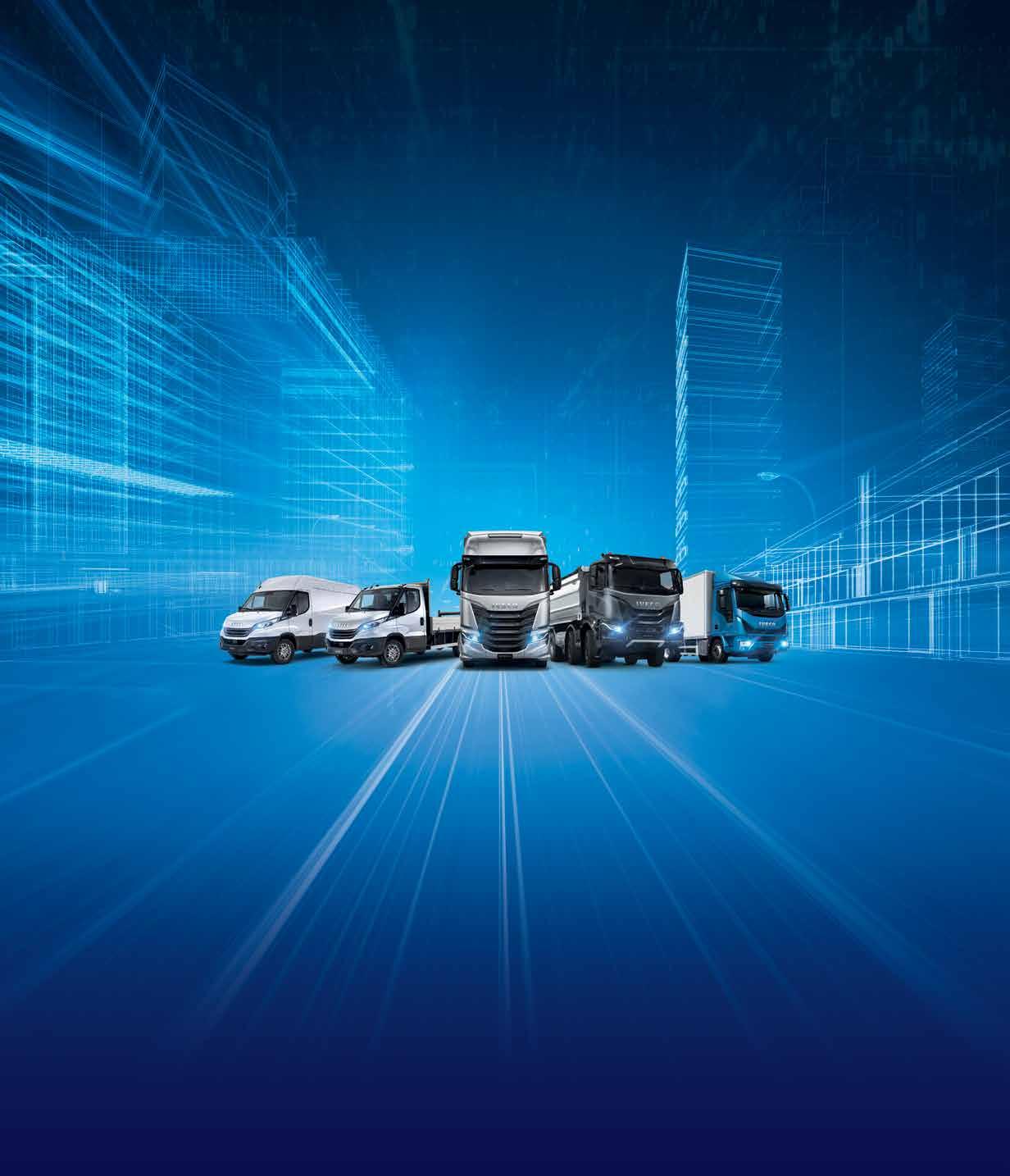
European technology
- High quality complete line-up in terms of tonnage, power, torque, safety, ergonomics
- High performance and robust trucks for extreme Off-road conditions
Customer centricity
- Comfort, ergonomics and the latest safety technology to make on board easier
- Driver Style Evaluation tool on Heavy ON-road range and optimized vehicle design to improve customer profitability

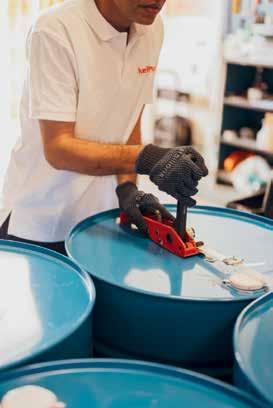
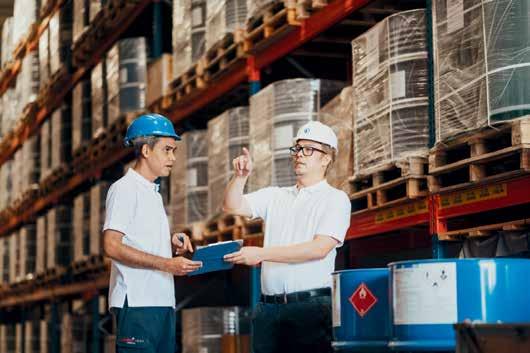



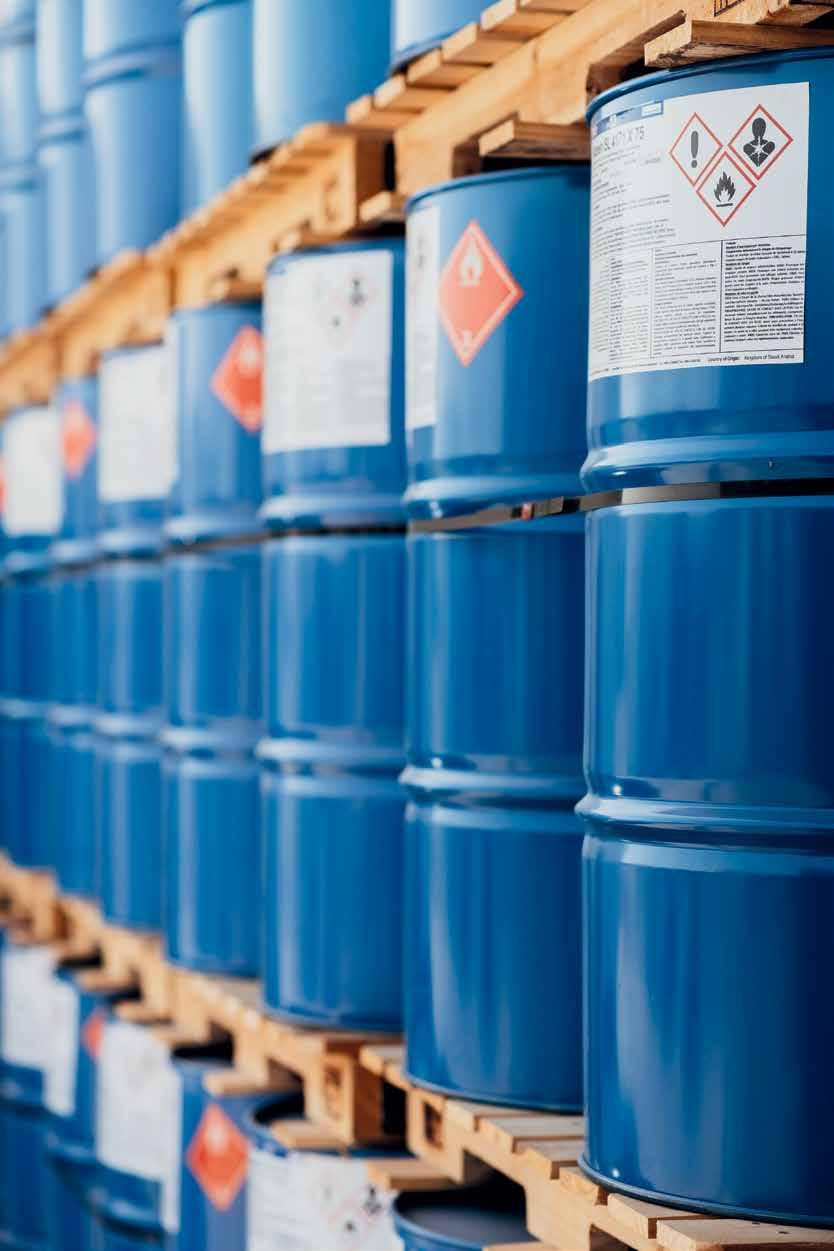
SIGNATURE MEDIA FZ LLE
P. O. Box 49784, Dubai, UAE
Tel: 04 3795678
Email: info@signaturemediame.com
Exclusive Sales Agent
Signature Media LLC
P.O. Box 49784, Dubai, UAE
Publisher: Jason Verhoven jason@signaturemediame.com
Editor: Abigail Mathias abigail@signaturemediame.com
Art Director: Johnson Machado johnson@signaturemediame.com
Production Manager: Roy Varghese roy@signaturemediame.com

The power of partnerships is exemplified in modern day businesses worldwide. We capture that synergy with this month’s cover story where Atracio and Butec, display the dual power of implementing asset management solutions across their global operations.
We bring you IVECO’s 50th anniversary celebrations as they ‘Drive the Road of Change.’
MAN Trucks also celebrates its 30th anniversary and successful partnership with its exclusive UAE Importer, Darwish Bin Ahmed & Sons (DBA).
An enlightening guest column by Annette Naude, Regional Head of Life Sciences and Chemicals – DHL Global Forwarding Middle East & Africa, highlights the challenges facing healthcare logistics.
Printed and Distributed by Masar Printing and Publishing L.L.C., Part of Dubai Media Incorporated Dubai, UAE
Contributor’s opinions do not necessarily reflect those of the publisher or editor and while every precaution has been taken to ensure that the information contained in this magazine is accurate and timely, no liability is accepted by them for errors or omissions, however caused. Articles and information contained in this publication are the copyright of Signature Media FZ LLE & SIGNATURE MEDIA LLC and cannot be reproduced in any form without written permission.
Showcasing how members come together, the National Association of Freight and Logistics (NAFL) hosts a successful AGM. We take you behind the scenes.
There’s also a unique Customer’s Day celebration by Slimstock who honours its partners at an exclusive event.
The launch of a new maritime academy in the country and many interesting guest columns on the shipping industry, make for captivating reading.
As you scroll through this issue, here’s some food for thought. When people collaborate, they bring diverse expertise, resources, and perspectives, which can lead to creative solutions that wouldn’t be possible alone. Partnerships build trust, open doors to new opportunities, and create a support system that sustains success.
In an increasingly polarised world, let’s endeavour to build more resilient bridges in our work lives and personal lives to match.
Every link in the chain tells a story. Read on.
Abigail Mathias Editor

1500+
150+
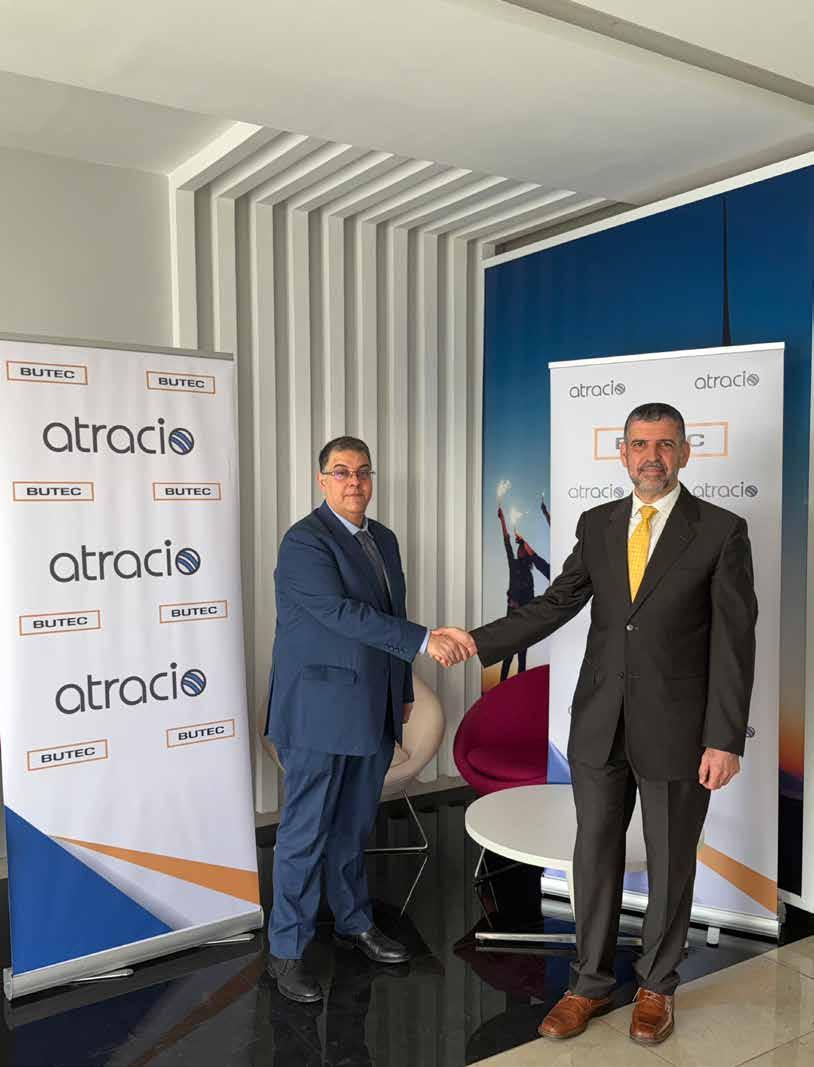
Ralph Maacaroun, Head of Procurement at BUTEC, details in this article the journey and positive outcomes of implementing Atracio’s asset management solution across their global operations.
Managing a large number of assets across vast construction sites was a major challenge. The primary requirement was to accurately track their extensive asset base, schedule maintenance, identify employees of concern and be able to quickly locate critical equipment in the event of an emergency.
Relying on spreadsheets or traditional methods for asset management increased the likelihood of data inaccuracies, misplacements, and delays in locating assets when needed.
Each asset was tagged with an RFID tag, transforming it into a digital asset with a unique digital identity. RFID readers were strategically placed across BUTEC’s sites in multiple countries, providing a multi-site view and enabling real-time tracking of asset movements and status updates.
The project consisted of implementing an efficient and rapid inventory solution using
RFID technology within BUTEC Group.
Atracio and BUTEC have revolutionised asset management, particularly in the construction sector, by leveraging RFID technology. BUTEC faced challenges in tracking a vast number of assets across multiple sites, leading to inefficiencies and potential losses.
To address this, Atracio implemented RFID tags on assets, enabling real-time tracking and minimizing human errors. This system enhances visibility, prevents unauthorized movements, and streamlines inventory management1. The result? Increased efficiency, reduced costs, and improved security for BUTEC’s operations.
In today’s fast-paced Engineering, Procurement, and Construction (EPC) landscape, visibility and control over assets are crucial for operational success. BUTEC, a leading regional group recognised for its multidisciplinary expertise in Engineering and Contracting, Electro-mechanical
Solutions, Facility Services, and Utility Services operating in 21 countries across the Middle East and Africa, is pioneering a modern approach to asset management. With thousands of assets ranging from tools and machinery to office equipment and vehicles, spread across multiple countries, BUTEC faced the daunting challenge of ensuring real-time tracking, optimised assignment, and seamless coordination throughout the life cycle of each asset.
To meet these demands, the company partnered with Atracio Solutions, which offers a cutting-edge supply chain execution platform bringing together AI capabilities, RFID technology, and advanced analytics. This partnership enables a smarter and more agile asset management process through real-time insights and centralised control. For BUTEC, the collaboration represents more than just a digital upgrade. It is a strategic shift toward scalable and data-driven operations.
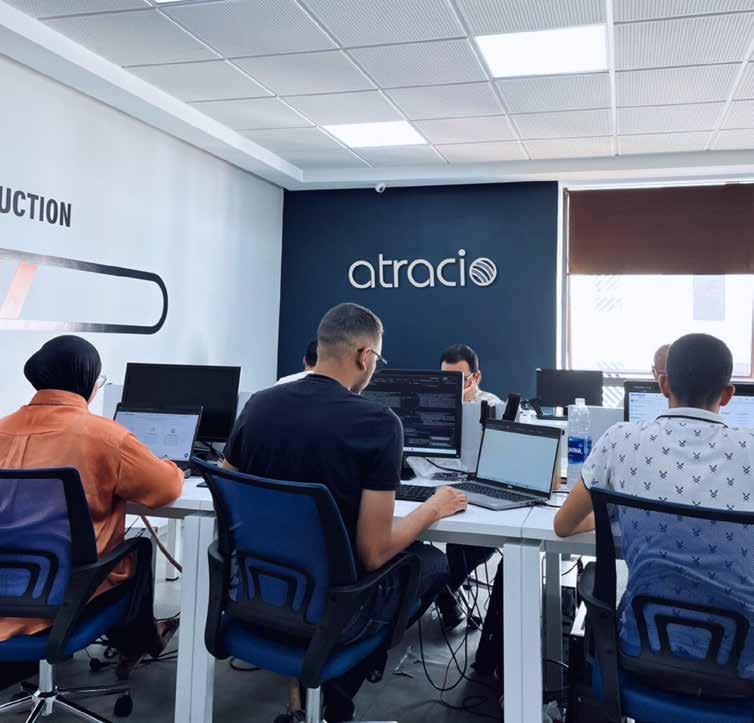
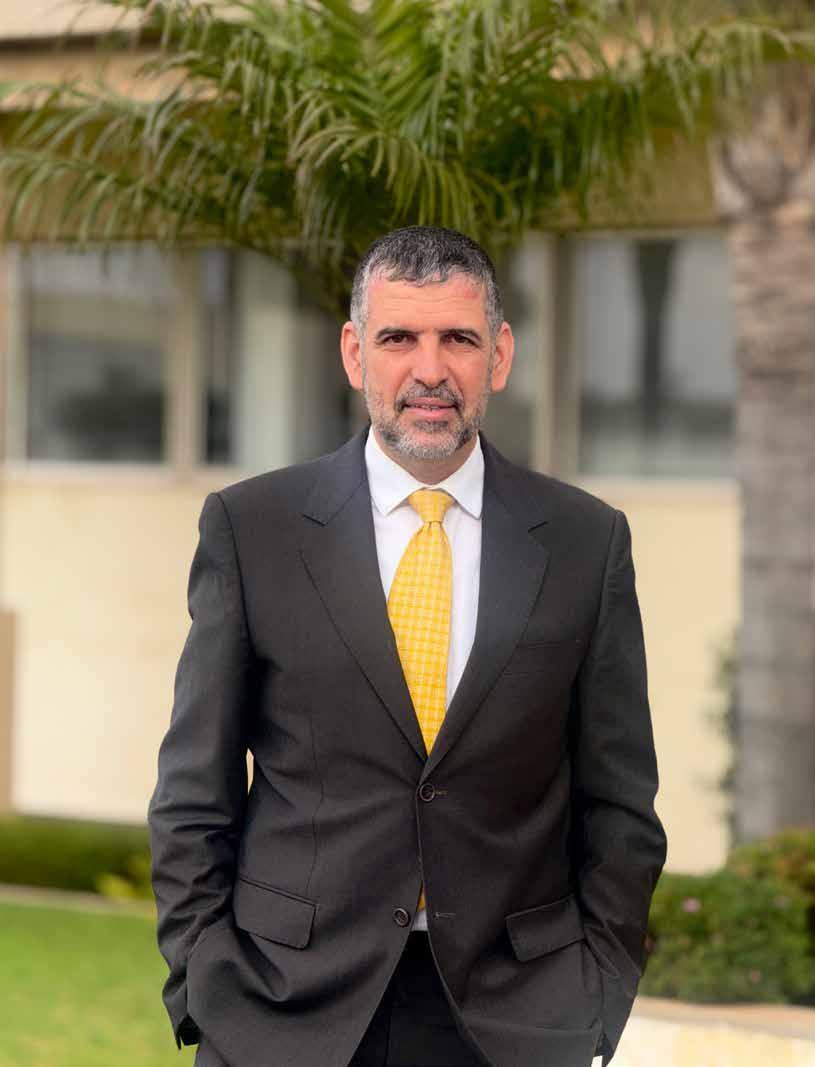
Co-Founder, Atracio
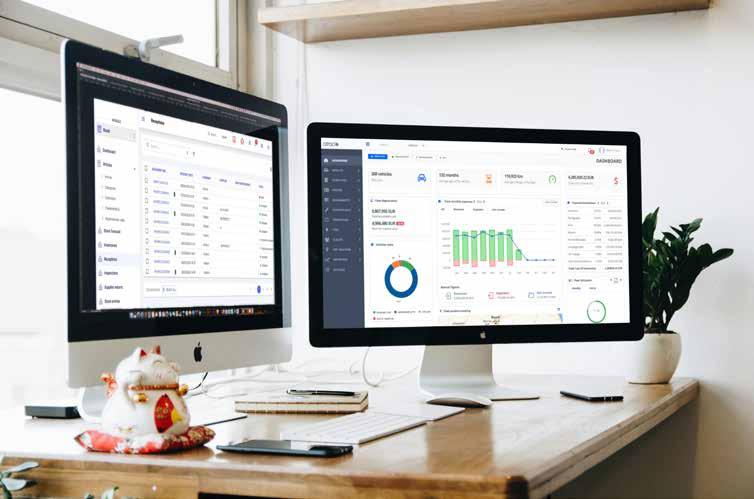
Asset management in the EPC industry is inherently complex, especially when assets are dispersed across multiple countries and project types. For BUTEC, managing thousands of pieces of equipment, tools, and vehicles evolved into a complex operation requiring smarter, more streamlined solutions. Whether it was basic office supplies or large machinery, the Group needed a system that could provide real-time visibility, reduce manual work, and ensure every asset was properly tracked throughout its lifecycle. Traditional methods like spreadsheets and physical audits were no longer sufficient. BUTEC required a faster, smarter, and more reliable way to maintain control, especially in light of its expanding global footprint.
Ralph Maacaroun shares, “We recognised the need for a solution to manage our assets, so we began assessing different options available in the market.”
He continues, “With the vast expanses of countries like Morocco, Algeria, and Saudi Arabia, it’s crucial for us to effectively monitor assets spread across a variety of projects.”
To address these challenges, BUTEC selected Atracio, a smart asset management platform built around RFID technology. The system enables teams to track asset location, usage, and movement across different project sites instantly. It replaces the manual, time consuming, and labour intensive inventories with automated scans and real-time KPI’s and interactive dashboards, significantly enhancing operational efficiency.
RFID tags are now attached to every tracked asset, allowing for precise identification and instant data capture. This has eliminated the inefficiencies of manual inventory processes, transforming what used to take hours into tasks completed in seconds. For BUTEC, this shift resulted in faster reporting, increased accuracy, and better resource allocation.
Atracio’s RFID-driven system also provides mobile access, enabling field teams to manage and update asset data directly from their smartphones or tablets. This mobility ensures operational flexibility and supports real-time decision-making from anywhere.
“Atracio’s system saved us a lot of time. What used to take an hour now takes a few seconds,” says Ralph Maacaroun, Head of Procurement at BUTEC.
With Atracio in place, BUTEC has turned asset management from a slow, manual task into a fast, data-driven process. The use of RFID technology brought a new level of precision to inventory tracking. Teams now have access to real-time data on the location and status of every asset, whether it’s office furniture or high-value equipment, across multiple countries and project sites.
“An inventory that used to take around an hour for a single office can now be completed in just a few seconds. This saves a significant amount of time and allows for quick tracking of assets, including any changes in their location,” explains Ralph Maacaroun.
The results speak for themselves. Inventory tasks that used to take hours can now be completed in seconds. This has helped BUTEC reduce operational delays, improve decision-making, and lower costs tied to asset loss or mismanagement. Field teams are also more agile thanks to mobile access that keeps them connected to live asset data from any location.

Jean Ceccaldi is the CEO of ECS Group, having taken on the role in May 2024 as part of a strategic restructuring. With nearly three decades of experience at ECS Group, he has held key positions in operations, sales, and general management, including serving as Managing Director of Aero Cargo France, one of ECS Group’s topperforming subsidiaries.
Under his leadership, ECS Group has focused on digital transformation, sustainability, and enhancing agility in the air cargo industry. He has emphasised the importance of integrating advanced technology and fostering closer relationships with clients to ensure the company remains a global leader in GSSA services.
Global Supply Chain Editor, Abigail Mathias caught up with the CEO at the recently concluded World Cargo Symposium in Dubai, to find out more about how the group functions.
Abigail Mathias: What inspired your vision for ECS Group’s transformation, and how do you see the GSSA model evolving in the next decade?
Jean Ceccaldi: Our transformation was driven by a clear need to future-proof ECS Group in an industry facing rapid technological and environmental shifts. We recognized that the traditional GSSA model needed to evolve—from basic transactional representation to becoming a strategic, tech-enabled partner for airlines. This vision guided our investment in innovation
platforms like the Cargo Digital Factory and our collaboration with CargoTech to expand a robust digital ecosystem. Looking ahead, we see the GSSA model becoming more agile, data-driven, and sustainabilityfocused. With offerings such as Total Cargo Management (TCM), Total Cargo Expertise (TCE), and Mail & More, we’re not just providing services—we’re enabling growth for our airline partners. That said, while we embrace digital transformation, we remain deeply committed to preserving the human element that defines us. Our sales DNA—rooted in relationships, intuition, and expertise—cannot be cloned or fully digitized. It’s this balance of innovation and human insight that sets ECS Group apart and will continue to shape our identity in the years to come.
Abigail Mathias: How is ECS Group integrating environmentally responsible practices into its operations, and what challenges have you faced in promoting sustainability within the air cargo industry?
Jean Ceccaldi: Our commitment is evident in initiatives like our groundbreaking partnership with TUI on Sustainable Aviation Fuel (SAF)—the first agreement of its kind between a GSSA and an airline. But our efforts extend well beyond that. We collaborate closely with airlines to align on shared environmental goals, offering data-driven solutions, capacity optimization, and digital tools that reduce waste and unnecessary emissions.

Through our Cargo Digital Factory and investment in CargoTech, we are advancing smart technologies that both improve operational efficiency and reduce our environmental footprint. Across our global network, we also promote eco-certification programs and encourage energy-efficient practices at the local level—ensuring sustainability is part of our day-to-day decision-making. However, driving meaningful change in the air cargo sector remains complex. Regulatory inconsistencies across regions, the logistical challenges of international operations, and the need for broad industry collaboration continue to pose hurdles. Even so, we remain focused on practical, scalable actions that deliver measurable environmental benefits— without compromising service quality or commercial performance.
Abigail Mathias: What are your top priorities as CEO, and how do you plan to ensure ECS Group remains a global leader in GSSA services?
Jean Ceccaldi: As CEO, my main priorities are to accelerate our digital transformation, reinforce our commitment to sustainability, and strengthen our global-local operating model. We’re driving change through our flexible modular services which empowers clients to select support solutions tailored to their strategic goals. We’re also enhancing local engagement through a restructured regional leadership approach, ensuring we stay closely connected to our clients’ needs. A strong emphasis on green logistics and training in digital solutions across our teams will further sharpen our competitive edge. My focus is to ensure ECS Group stays not just ahead of trends but leads the future of the GSSA.
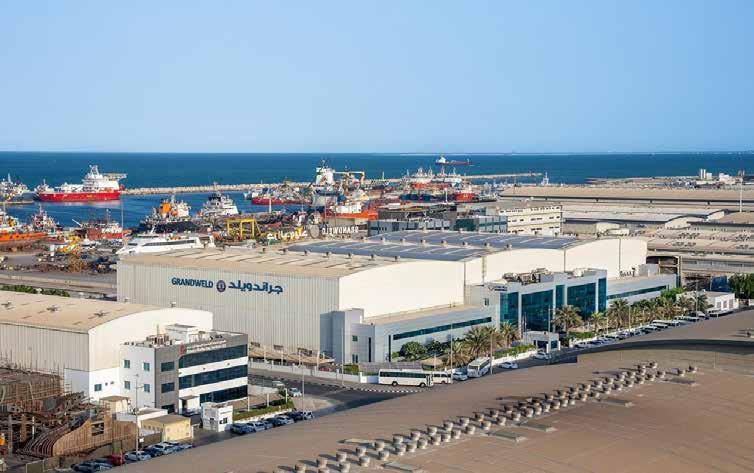
• The company marks over 40 years of successful operations in the UAE
• The UAE’s shipbuilding output is expected to reach USD 423.01 million in 2025, with a robust CAGR of 3.47 per cent from 2025 to 2029.
• The UAE’s Offshore and Commercial Ship Repair market is estimated to reach USD 802.3 million by 2031.
Grandweld Shipyards, a leading fully integrated shipyard within the maritime and offshore industries, highlighted cuttingedge ship design, shipbuilding, repair and conversion capabilities, with a strong emphasis on sustainability and technological advancement, at the ‘Make It In The Emirates Forum 2025’, that took place from May 19 to 22 at ADNEC, Abu Dhabi. This comes in response to the growing maritime activity and the increasing need for advanced local capabilities, as the UAE’s strategic location and pivotal role in global trade continue to drive demand across the sector.
According to industry forecasts, the UAE’s shipbuilding output is expected to amount to USD 423.01 million in 2025, with a robust CAGR of 3.47 per cent from 2025 to 2029, while the country’s Offshore and Commercial
Ship Repair market is estimated to reach USD 802.3 million by 2031, reflecting the immense growth and value creation potential within the sector. Grandweld’s continued investment in innovation and sustainability positions it as a key contributor to the UAE’s ambition of becoming a global maritime powerhouse. The company aims to support and strengthen the UAE’s growing maritime infrastructure by delivering future-ready ship design, shipbuilding, and repair solutions, in line with its steadfast commitment to the “We the UAE 2031” vision.
At the forum, a diverse portfolio of vessels across key sectors such as Oil and Gas, Military, Tugs, Ports and Harbours, Autonomous Vessels, Passenger Transportation, and Crew Boats were showcased by the company.
Jamal Al Abki, General Manager of Grandweld Shipyards, said: “We are eager to engage with industry leaders at the Make It In The Emirates Forum. The event enabled us to highlight the UAE’s position of not just as a manufacturing hub, but as a centre of innovation, particularly in complex, performance-driven industries like shipbuilding.”
“The UAE government’s continued investment in expanding ports, shipyards and maritime infrastructure has been a key catalyst in the growth of the country’s
shipbuilding and repair industry. Major ports like Jebel Ali and Khalifa Port have undergone significant transformation to handle larger vessels and enhance trade efficiency. At Grandweld, our shipyard is designed to address these dynamic demands of the global maritime sector, with a strong focus on adopting advanced technologies and sustainable solutions,” he added.
With detailed models, immersive videos and interactive displays, visitors gained valuable insights into Grandweld’s legacy in world-class shipbuilding, maintenance and conversion for regional and international clients. Grandweld Shipyards also marks over 40 years of successful operations in the UAE, and the company continues to shape the future of maritime excellence through its focus on local manufacturing, cutting-edge technology and international partnerships.
Having placed innovation and sustainability at the core of its operations, Grandweld’s cutting-edge infrastructure and a strong emphasis on ecofriendly practices further exemplify the principles championed by the “Make it in the Emirates” initiative. Through its participation, the shipyard reaffirms its dedication to advancing the UAE’s transition toward a cleaner, smarter and more resilient industrial economy.

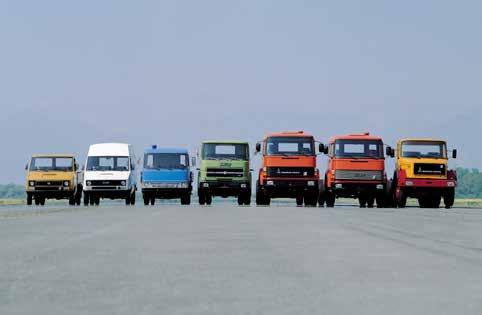
1st decade 1975–1984
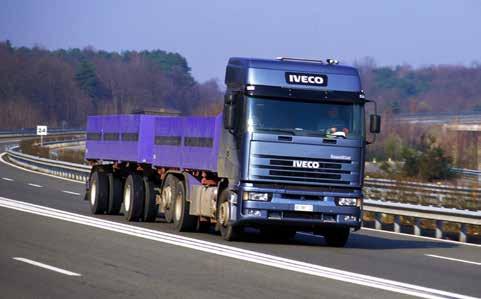
IIVECO commemorates its rich history of innovation and reaffirms its commitment to moving society forward by partnering with strategic partners, bodybuilders, dealers and customers to power the transformation of the transport industry – Driving the Road of Change.
The company was founded in 1975 with the union of five leading European industrial vehicle manufacturers: Fiat Veicoli Industriali (which included Officine Meccaniche and Lancia Veicoli Speciali), Unic, and Magirus-Deutz.
VECO proudly marks 50 years since its foundation in 1975, when five leading European industrial vehicle manufacturers came together, with a programme of activities to celebrate its rich legacy of excellence and innovation in the transport sector. Together, these commemorations reflect IVECO’s enduring commitment to progress, its strong connection to its roots, and its vision for the future. On its 50th anniversary, IVECO honours the past, celebrates the present, and embraces the exciting opportunities that lie ahead.
Today, IVECO is one of the main players in the global transport sector, it has established a global presence with a manufacturing footprint that includes 7 production sites and 8 Research and Development Centres in Europe, Asia, Africa, Oceania and Latin America, and a widespread dealer network with 3,500 sales and service outlets supporting customers in over 160 countries.
“Over the past 50 years, IVECO has thrived through collaboration and innovation. Our success is a testament to the collective effort of everyone who has been part of our journey – our employees, dealers, customers and partners. Together, we have built a brand that is ready to face the challenges of the future. We have contributed to shaping the history of commercial mobility and we feel empowered by our legacy and the strong foundations we have built”, commented Luca Sra, President, Truck Business Unit, Iveco Group.
IVECO’s 50th-anniversary celebrations will culminate in “50xBeyond”, a landmark four-day event by Iveco Group at Officine Grandi Riparazioni-OGR Turin from 12 to 15 June. This flagship gathering will honour IVECO’s rich heritage, deeply rooted in its Italian DNA, while shining a light on its bold vision for the future. Turin – a city central to IVECO’s history, a symbol of its Italian origins, and the headquarter of Iveco Group – has been chosen as the venue for this milestone event, reflecting the brand’s deep connection to its roots. Bringing together institutions, customers, investors, dealers, partners, and all stakeholders that have contributed to building the history of the brand and shaping its future, the event promises to be a fitting tribute to five decades of excellence and innovation.
It will serve as a platform for reflection, collaboration, and inspiration, celebrating the company’s accomplishments, recognising the contributions of its people, and reaffirming its pride in its heritage while looking ahead to the next chapter of IVECO’s journey.
Beyond this signature event, IVECO is planning a year-long programme of activities to connect its legacy with its
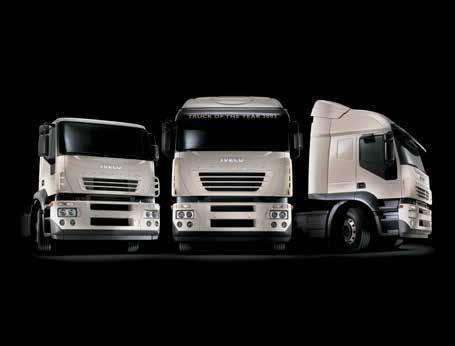
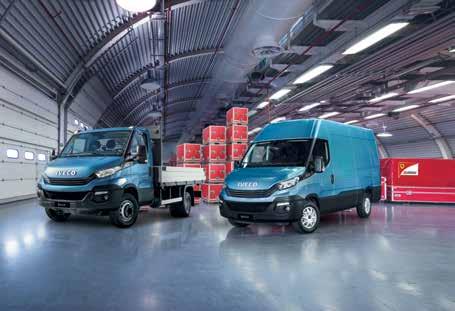
future aspirations. Customers will be invited to exclusive driving experiences in Turin and Madrid, where the historic Pegaso brand was born and where IVECO Spanish headquarters are now, allowing them to engage with IVECO’s cutting-edge vehicles in real-world settings. Meanwhile, IVECO vehicles will take centre stage in iconic locations across Turin, creating unforgettable moments for residents and visitors, and interactive art installations will engage communities, showcasing IVECO’s innovative spirit in new and unexpected ways. The celebrations will extend beyond the brand’s birthplace, engaging the IVECO community with local events across the world, from Argentina to Australia.
IVECO will also mark this significant milestone with the release of Limited Edition light and heavy vehicles bearing specially designed commemorative liveries that blend the brand’s rich heritage with its forward-looking ethos. The Limited Edition IVECO S-Way will be officially launched in May at the Moto GP in Misano. Available in three colours, it will feature distinctive elements including a commemorative sticker, Anniversary logo and coloured grille, as well as customised interiors. The Limited Edition Daily will be available in cab and van, with a Premium version featuring Anniversary stickers and logo, and customised interiors, while a Basic version will have the anniversary sticker on the door.

reduce their carbon footprint without compromising on performance. The company is uniquely positioned as a global leader in the field of alternative energy solutions, and is the only manufacturer to provide natural gas technology across its entire range of light, medium, and heavy-duty vehicles. Driven by its multienergy approach, IVECO continues to invest significantly in the development of alternative powertrains, including electric and hydrogen technologies, reinforcing its leadership in the transition to sustainable transportation.
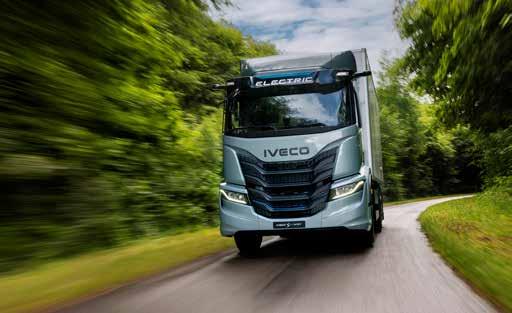
IVECO’s journey began in 1975 with the union of five leading European industrial vehicle manufacturers: Fiat Veicoli Industriali (which included Officine Meccaniche and Lancia Veicoli Speciali), the French Unic and the German Magirus-Deutz. Together, they combined over 150 years of engineering expertise and innovation under one name: IVECO, acronym of Industrial Vehicles Corporation. Through acquisitions, alliances and partnerships, it has become a major player in road transportation on the world stage, establishing a presence as a manufacturer and commercial provider in
the most important industrialised countries and emerging markets alike.
Since its foundation, IVECO has been synonymous with excellence, combining tradition and innovation to deliver vehicles that meet the diverse needs of its customers. Today, IVECO, together with ASTRA, FPT Industrial, HEULIEZ, IDV, IVECO BUS and IVECO CAPITAL, is part of a Group that represents seven brands, offering a comprehensive range of commercial vehicles, powertrains, buses, specialty vehicles and financial services.
Through its unwavering commitment to sustainability and innovation, IVECO has long been a pioneer in the transportation industry, pushing the boundaries of ecofriendly mobility, allowing customers to
At the core of IVECO’s business philosophy is a deep commitment to putting the customer first, recognising that each operation is unique. With its wide range of light, medium and heavy vehicles, from 2,5 to 60 tons, complemented by an extensive suite of services, it provides comprehensive transport solutions tailored to specific business and operational requirements, empowering customers to succeed in an ever-evolving market.
Through continuous advances in telematics, digitalisation and connectivity, IVECO further enhances this tailored approach, offering intelligent solutions that drive efficiency, performance, and business growth, as well as enhancing the driver’s quality of life on board.
IVECO has consistently demonstrated its commitment to excellence, partnering with global sports icons like Scuderia Ferrari, Moto GP and New Zealand’s All Blacks. Through initiatives like the Overland project and tough competitions such as the Dakar off-road rally, it has proven the reliability and durability of its vehicles as they overcame extreme terrains and weather conditions.
A long-time supporter of the European Truck Racing Championship, IVECO has sponsored winning teams and advanced decarbonisation goals with its natural gas powered S-Way LNG Pace Truck. Last year, IVECO furthered raised the profile of sustainable transport through a partnership with Metallica, using its multi-energy fleet to deliver low-carbon logistics for the European leg of the band’s M72 World Tour, setting a new standard for eco-friendly event transport.

Federal Express Corporation (FedEx), the world’s largest express transportation company, recently announced the launch of 68 new FedEx Authorised Shipping Centers (FASCs) at Emirates Post branches, the UAE’s official postal services provider. This expansion significantly enhances the accessibility of FedEx retail services nationwide, reinforcing the company’s commitment to supporting the UAE economy and connecting businesses and communities to global markets.
With the UAE’s population surpassing 11 million in 2025 , demand for express logistics services continues to grow. The newly established FASCs at Emirates Post branches offer walk-in customers with FedEx international shipping services, without the need for a FedEx account. Customers can ship documents and packages from all emirates.
Nitin Tatiwala, vice president of marketing, customer experience, and air network for FedEx Middle East, Indian Subcontinent and Africa, said, “At FedEx, we are committed to delivering outstanding customer

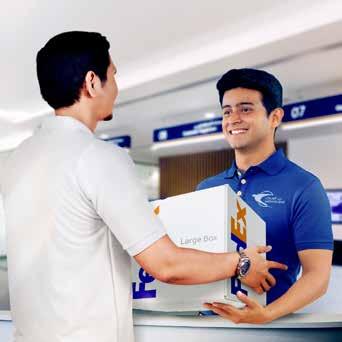
experiences by simplifying logistics and making our solutions more accessible. This collaboration allows us to significantly expand our retail access points across the UAE through Emirates Post’s extensive local network, bringing fast, reliable, and efficient services closer to communities. It also strengthens the UAE’s connectivity to global markets while adapting to the evolving needs of local consumers.”
Ayoub Ahli, general manager of Emirates Post, said, “Our continued collaboration with FedEx underscores Emirates Post’s vision of transforming the largest branch
network in the UAE for postal and logistics services into an inclusive gateway that connects communities with global markets. By integrating FedEx Authorized Shipping Centers within our branches, we are reaffirming our commitment to enhancing accessibility and customer convenience. More importantly, this move aligns with the UAE’s national agenda, empowers businesses, simplifies logistics for individuals, and ensures that worldclass international shipping solutions are within reach for all, wherever they are across the Emirates.”
Through the FASCs, customers will have access to a range of FedEx services, including FedEx International Priority® service, which delivers within two to three business days to major markets around the world. Customers can also opt for FedEx Regional Economy®, a cross-border, customs-cleared, door-to-door road service with day-definite delivery, ideal for cost-effective shipping of less timesensitive packages to key markets across the Middle East.
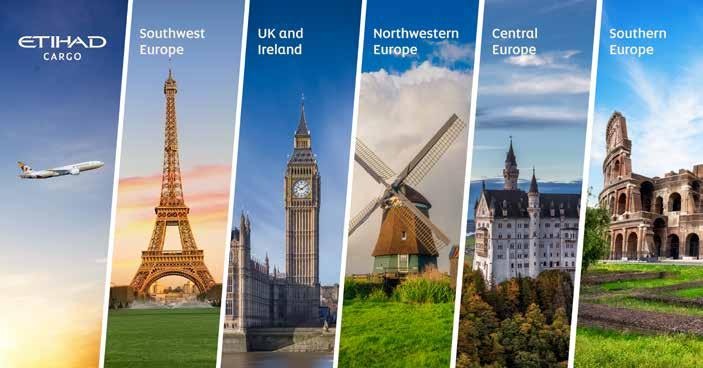
• Strategic realignment introduces dedicated regional leadership for enhanced market engagement and expanded network connectivity
Etihad Cargo, the cargo and logistics arm of Etihad Airways, announced a strategic restructure of its European commercial team into five areas to drive deeper customer alignment, streamline regional support and reinforce its position across key markets. These changes come in response to sustained growth and the expansion of Etihad Airways network and capacity offering across Europe.
The five new European regions led by Rainer Krammer, Regional Manager Europe and Americas, include a Southwest Europe region covering France, Spain and Portugal led by Eric Lamare, the newly appointed Area Manager based in Paris, UK and Ireland led by Michael Mackenzie, Northwest Europe covering Belgium, Netherlands and Denmark led by Karim Grinate, Central Europe covering Germany, Austria and Switzerland led by Karim Rakkrouki and South Ease Europe covering Italy, Poland, Czech Republic and Greece led
by Lorenzo Donato. The new regional split ensures market leadership for both online and offline stations and direct customer engagement in key markets.
Etihad Cargo is the cargo and logistics arm of Etihad Airways. Since its establishment in 2004, Etihad Cargo has grown rapidly to become one of the leading air cargo carriers in the world, offering customers a range of cargo products and services to five major continents. Its hub in Abu Dhabi is strategically located at the centre of the world’s busiest trade lanes, providing an integral link between Asia, Europe, North America, Australia and Africa.
In addition to general cargo, Etihad Cargo offers a wide range of specialty products including live animals, dangerous goods, valuables and vulnerables, personal effects, as well as its market leading cold chain products (the latter holding IATA’s stringent Centre of Excellence for Independent Validators certifications for both
Pharmaceutical and Perishables Logistics, as well as Live Animals Logistics).
Commenting on the restructure, Stanislas Brun, Chief Cargo Officer, said: “Etihad Cargo’s European network is experiencing strong and sustained growth. This restructure allows us to scale our operations in line with market demand, while reinforcing our commitment to customercentricity and operational excellence. By bringing our teams closer to the markets they serve, we are positioned to deliver faster, smarter, and more agile logistics solutions.”
The new European regional organisation reflects Etihad Cargo’s commitment to agility, customer-centricity and operational excellence across its global network. Etihad Cargo have recently introduced additional capacity to Europe in its Summer Schedule with 660 tons of weekly wide body capacity and 200 tons of additional weekly freighter capacity.

Precision and accuracy are what makes customers happy — and SSI SCHAEFER solutions deliver both.
All you need is a robust track and trace system, powered by the right software to ensure product integrity and operational excellence throughout your supply chain. Yes, it’s that straightforward.
Work with us to drive efficiency in your warehouse operations.
Learn More About WAMAS Control Center
of
Proactive issue detection and alerting
Real-time visibility for your warehouse operations
Customizable dashboards for quick data analysis
Maximum efficiency and reduced costs in fulfilment process
Flexible and scalable
The

Pharma.Aero and TIACA (The International Air Cargo Association) have partnered on the Food and Farm for Health project to underscore the economical value and the dual role of air cargo in healthcare access and economical development in low- and middle-income countries. Strategically developed in collaboration with CCA (The Cool Chain Association) and HLA (The Humanitarian Logistics Association, the project seeks to optimize air cargo’s potential to deliver life-saving medicines while simultaneously supporting local agricultural economies.
Frank Van Gelder, Secretary General of Pharma.Aero, provides insight into the project’s goals and impact: “The Food and Farm for Health Project is about leveraging air cargo to address two critical needs in low- and middle-income countries: healthcare access and economic empowerment. We, at Pharma.Aero, recognized a critical gap and initiated this project to use air cargo as a dual-purpose
tool: flying in life-saving pharmaceuticals and medical supplies while flying out perishable agricultural products—like fruits, vegetables, and flowers—from local farmers to Western markets.
By utilising available cargo space on return flights, we create a more costeffective, efficient trade route. This approach not only ensures faster access to essential medicines and vaccines, but also opens new market opportunities for farmers, boosting local economies and providing better access to international markets”, said Van Gelder.
“Air cargo is more than a mode of transport — it’s a critical lifeline for economies and communities across the globe” commented Steven Polmans, Chair of TIACA. “The completion of our Global Market Evolution Analysis marks a major milestone in understanding how perishable goods and pharmaceuticals move, especially in regions where access means everything. From Kenya’s flower exports supporting millions of jobs to India’s
seafood sector driving billions in trade, our work confirms that airfreight is a catalyst for opportunity, health, and resilience.
As TIACA, we’re committed to building smarter, more equitable supply chains that serve both people and planet. This project is a key step in advancing that vision — and we thank all contributors for bringing their expertise and passion to this important work.”
Leveraging the expertise of specialists in pharmaceutical logistics, humanitarian supply chains, and temperature-sensitive freight, the project will analyze global air cargo movements, assess their economic impact and evaluate their role in advancing the United Nations Sustainable Development Goals (SDGs).
The Food and Farm for Health initiative reinforces the shared mission of all four organizations to support equitable and sustainable access to healthcare and economic resilience globally.
The Cool Chain Association (CCA) is a non-profit organisation bringing together all parts of the temperature-sensitive supply chain to create an impact with visible and measurable results both for companies and for society.
“Partnerships, connections and balance, as in so many areas of life, is going to be key to the success of this groundbreaking initiative”, highlighted Ian Buck, board member of the CCA.
“Aligning healthcare providers in their mission to provide lifesaving treatments and preventative medicines to developing and emerging regions, and in turn giving those regions an economic reach for their home grown and produced perishable products is the balance we seek. Highlighting those connections and looking to forge partnerships and understanding with solid data at either end we hope will provide access and benefits for all.”

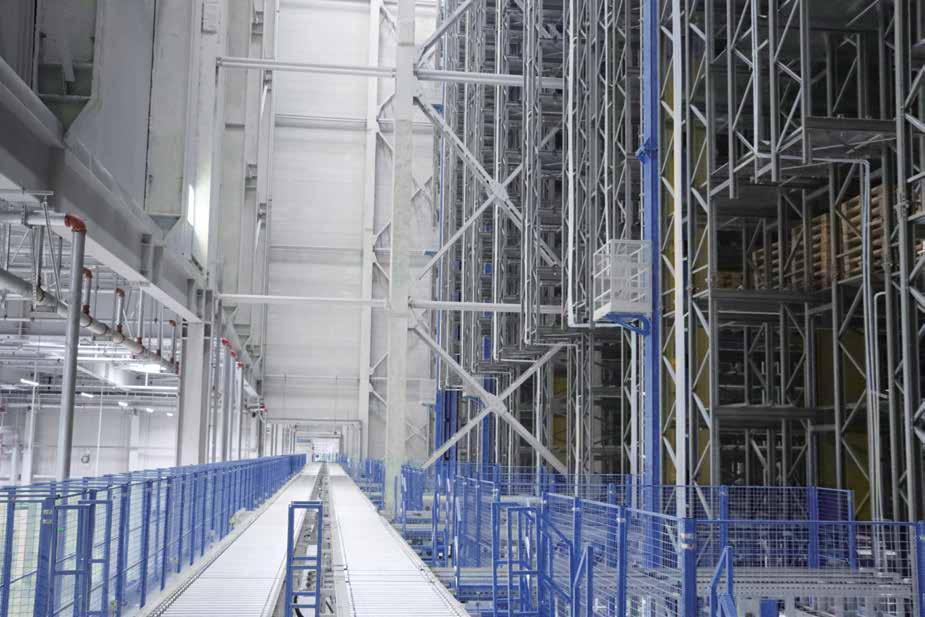
Founded in 1979 and joining ClMC Group in 2014, we are a proud member of ClMC TlANDA and a global leader in intralogistics and material handling solutions. With 40+years of expertise and 1000+ large-scale projects, we provide customized automation system solutions for industries including 3PL, retail, express, pharmaceuticals, FMCG, petrochemicals, new energy, F&B, cold storage, and CHS.
Our systems ensure faster order fulfillment, higher accuracy, and smarter space utilization—empowering businesses for greater success. Innovation Drives Your Success.
Our solutions are designed to adapt to your unique needs, del ivering measurable improvements in productivity and speed.
3 Reasons to Choose CIMC TIANDA Automation Solutions
Seamless Integration: Enhance your warehouse with our automated storage systems and robotic picking solutions.
Advanced Control: Real-time monitoring and predictive analytics to optimize performance.
Scalable Solutions: Adapt to growing demands with flexible, customizable systems.
We are excited to introduce Aron Schiller, our new Sales Director for the GCC and MEA regions, who brings over 11 years of experience in supply chain automation and intralogistics.
He has built a strong track record in e-commerce, manufacturing, retail, wholesale logistics, as well as pharmaceutical and medical distribution centers. Our team will be available at the expo to discuss how CIMC TIANDA can help optimize your logistics operations and drive innovation.z



Unveiling of MAN TGE to UAE customers highlight of the event.
MAN Truck & Bus recently celebrated a significant milestone - 30 years of partnership with their exclusive UAE Importer, Darwish Bin Ahmed & Sons (DBA) - in a special event held in Dubai. The evening also featured the highly anticipated UAE launch of the MAN TGE, a bold expansion into the growing Van segment.
Hosted in the presence of key customers, industry leaders, and senior executives from MAN Truck & Bus and DBA, the event paid tribute to a partnership that has significantly influenced the UAE’s commercial vehicle sector.
Speaking at the event, Mr. Thomas Hemmerich, Senior Vice President & Head of Sales Area International, MAN Truck & Bus SE, emphasized the strength and significance of the partnership: “Our collaboration with DBA isn’t simply about vehicles—it’s about trust, shared vision, and relentless innovation. DBA’s deep local understanding combined with MAN’s world-class engineering has been the cornerstone of our success. Tonight, as we celebrate 30 exceptional years, we look ahead with the launch of the MAN TGE— ushering a new era of mobility solutions.”
Echoing this sentiment, Mr. Abdulla Alketbi, Group Managing Director – Darwish Bin Ahmed & Sons, shared: “The journey with MAN Truck & Bus over the past three decades is a source of great pride. Together, we have continually elevated industry standards, and now, with the introduction
of the MAN TGE, we’re thrilled to offer UAE customers, yet another exceptional solution tailored for the future.”
The highlight of the evening was the dramatic unveiling of the MAN TGE, positioned as the “truck among vans.”
Engineered to excel in urban environments, the MAN TGE blends MAN’s proven reliability with the agility and intelligence demanded by modern logistics. Featuring outstanding cargo capacity, superior safety systems, and smart driver-assist technologies, the MAN TGE is uniquely suited to the challenges of UAE region, ensuring enhanced efficiency and performance for businesses of all sizes.
The event concluded with an engaging product walkaround and networking dinner, allowing guests firsthand experience of the MAN TGE’s capabilities, innovative features, and premium design.

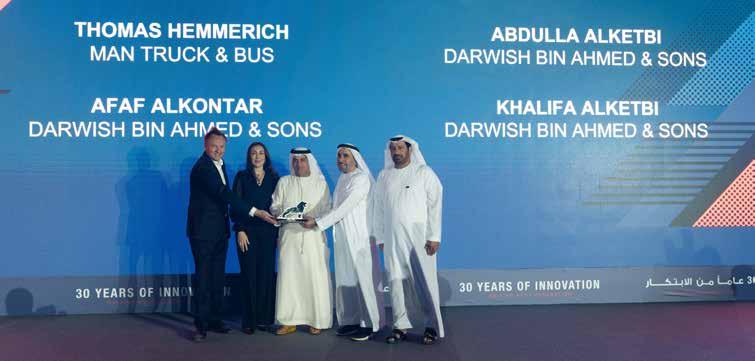
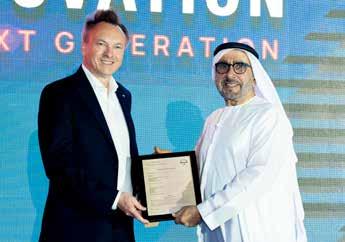
MAN aims to sell more than 30,000 TGEs for the first time in 2025. One component in achieving this goal is the commitment in the UAE. Sales of the vehicles will start in the third quarter of 2025, with the first vehicle deliveries targeted for the end of 2025. The MAN TGE will be offered locally in the station wagon and minibus variants, as well as in cooperation with local bodybuilders as an ambulance vehicle. However, service technicians and mobile pet care are also important target groups for this vehicle segment locally.
MAN was already successful in the neighbouring country of Qatar in 2021 with an order for more than 60 MAN TGEs. The TGEs, which were converted into VIP shuttles with luxurious equipment and customised by MAN Individual, transported visitors to the matches during the 2022 Men’s World Cup in Qatar. Today, the vehicles are in use as shuttles at various hotels and are proving themselves very well in extreme temperatures.

With a proven track record spanning three decades and a future driven by innovation, MAN Truck & Bus and Darwish Bin Ahmed & Sons remain committed to delivering pioneering transport solutions that continue to move the UAE forward.
The launch of the MAN TGE van in the UAE is expected to bring significant changes to the commercial vehicle market.
In the following ways:
Diversification of Offerings – MAN Truck & Bus is traditionally known for heavy-duty trucks, but with the TGE, they are entering the light commercial vehicle segment. This means businesses now have a premium van option designed for both urban and desert environments.
Customisation for Various Industries
– The TGE is available in station wagon, minibus, and ambulance configurations, making it suitable for logistics, passenger transport, and emergency services. This flexibility could attract a wide range of fleet operators.
Regional Adaptation – The van has been tailored for Middle Eastern conditions, with enhanced air conditioning, dust-resistant filters, and high-temperature tires. This ensures reliability in extreme weather, making it a strong competitor in the market.
Boost to Fleet Efficiency – MAN’s Connected CoDriver telematics solution helps businesses track and manage their fleets more efficiently. This could lead to cost savings and improved operational efficiency for companies adopting the TGE.
Future Sustainability Moves – MAN has already announced plans to introduce battery-electric vehicles (BEVs) in the UAE and GCC markets. The TGE launch could be a stepping stone toward greener commercial transport solutions.
Overall, the MAN TGE’s arrival is likely to shake up the market, offering businesses a high-quality, adaptable, and technologically advanced alternative to existing commercial vans.
Life Sciences & Healthcare is rapidly emerging as a priority sector in the region, underscoring the need for robust logistics expertise to support this critical industry. Annette Naude, Regional Head of Life
explains.
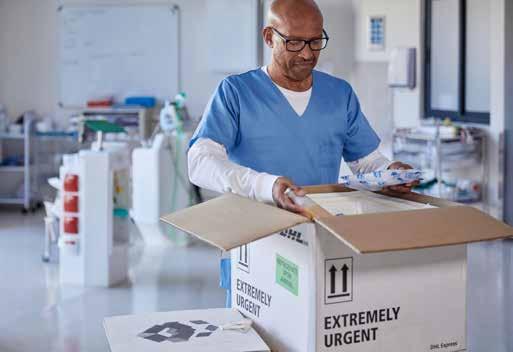
The global Life Sciences & Healthcare (LSH) logistics market is booming, with estimates that it could grow from USD 102.32 billion in 2025 to USD 237.39 billion by 2034, driven by technological advancements, rising pharmaceutical revenue from international commerce, and globalisation.
Despite its rapid growth, shipping in this highly regulated sector remains a logistical challenge for LSH companies. It involves managing complex healthcare supply chains, ensuring that critical medical supplies are transported and delivered safely, efficiently and on time. While the safety and integrity of goods are paramount
across all industries, LSH products require extra careful care during transport –including temperature and avoidance of shocks for certain products.
As a result, LSH companies are turning to experienced logistics providers to meet strict hygiene and safety standards to ensure compliance as well as product safety and efficacy (and can ensure end-to-end visibility). This includes temperaturecontrolled logistics to maintain product integrity during transport, qualified stations that comply with Good Practice (GxP) standards for the handling of pharmaceuticals, and end-to-end visibility of the entire healthcare supply chain. One
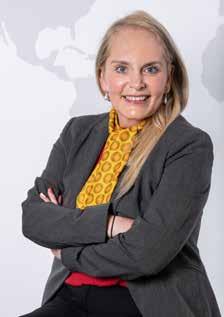
advantage of logistics providers like DHL is their global network and diverse business portfolio, which enable them to offer integrated solutions that encompass not only end-to-end transport and warehousing solutions but also value-added services such as custom packaging and labeling.
There have been growing healthcare investments in the MENA region, including national-level initiatives to improve healthcare services, promote preventive care, and ramp up healthcare infrastructure. The UAE’s healthcare expenditure is among the highest per capita worldwide at US$1,200, and the sector generates more than US$4.63 billion in annual revenues.
Meanwhile, Saudi Arabia’s ambitious Vision 2030 is revolutionizing its healthcare sector with over $65 billion allocated to develop healthcare infrastructure.
These investments have amplified the need for reliable, compliant, and efficient logistics solutions to support the longterm growth of the LSH sector. Currently, GxP certification is critical to conduct direct business with pharmaceutical companies – it covers everything from the point of manufacturing to the patient level, including collecting samples from hospitals to distribution, manufacturing, wholesale, and clinical trials. Temperaturesensitive logistics management services and strategically located cold chain facilities, are also vital to efficiently manage LSH supply chains throughout the entire MENA region.
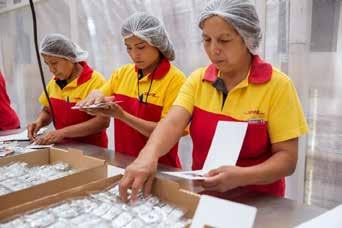
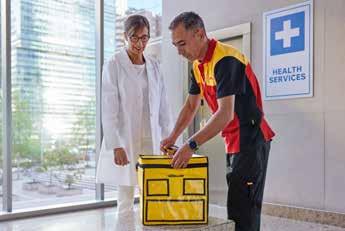
The growth of the generic pharma market, increased vaccine manufacturing, and rising clinical trial activities, means logistics providers will have to adapt their market strategies. For example, the Pharma Patent Cliff, where many drugs will lose exclusivity between 2025 and 2028, is expected to intensify competition from generic manufacturers, and create a need for more robust and resilient LSH supply chains in the future. But this shift also presents an opportunity to explore and potentially integrate additional modes of transportation, enhancing the flexibility and efficiency of supply chains:
Because even though a substantial amount of the LSH market share is predominately airfreight, it is anticipated that there could be shift from air to ocean freight. Consequently, logistics providers will need to improve the quality of their products and material. As demand in critical areas, such as clinical trials, biopharma, and cell and gene therapies grows even further, there will be demand for high-quality, specialized cooling infrastructure to accommodate
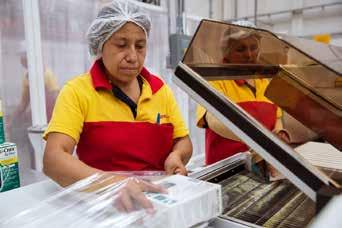

low and ultra-low temperature ranges. This will require new products to ensure temperature safety, such as DHL’s ThermoNet, which provides temperaturesensitive transportation solutions to maintain the integrity of sensitive products during transit. It is designed to prevent temperature shocks, humidity shocks, and container sweat, making it ideal for the shift from air to ocean freight.
For instance, after launching its national biotech strategy, Saudi Arabia is pushing to become a regional and global pharma hub and is developing ten new national centres for clinical trials. In many such instances, healthcare companies launching new products may require storage space quickly. Setting up compliant warehouses can take time, and LSH companies will likely need providers that offer compliant, highquality infrastructure and technology across all logistics touchpoints - from storage, order fulfilment, and distribution to global shipping and last-mile delivery.
To respond to market needs of healthcare professionals and patients, DHL Group
recently announced a strategic investment of €2 billion over the next five years to enhance its logistics capabilities in the life sciences and healthcare sector. Of this investment, 25% will benefit the EMEA region, with direct positive impact on the LSH infrastructure in the Middle East.
A significant part of the investment will be allocated to establishing new crossdivisional GDP-certified Pharma Hubs for multi-temperature shipments lanes, expanding cold chain capacity in existing facilities, commissioning new temperaturecontrolled vehicles, and enhancing both passive and active packaging solutions to ensure sustainable delivery.
As the distribution model changes in many companies and manufacturing moves in-house, there is scope to step in to meet the needs of pharmaceutical, biopharma, and medical customers who require agile, connected logistics solutions that go beyond traditional service lines. This will not only support the government’s efforts to expand and modernize healthcare facilities but also create new opportunities for private sector involvement, leading to a more robust and competitive healthcare market.
By Sam Achampong, Regional Director of CIPS, AMEA
As the U.S. prepares to implement new tariffs that are expected to impact global trade routes and supplier strategies, procurement and supply chain leaders— particularly in the Middle East—are being challenged to reassess long-established sourcing models.
As we progress through 2025, global supply chains are experiencing significant upheavals. The imposition of U.S. tariffs—such as the 145% duties on Chinese imports and proposed levies on pharmaceuticals—has disrupted traditional trade routes and supplier strategies.
Historically, global supply chains emphasised efficiency: just-in-time inventory systems, centralised sourcing, and minimal redundancy. But the current geopolitical landscape reveals the fragility of such models. Organisations are now prioritising resilience over pure cost-efficiency, focusing on flexibility and risk mitigation.
Companies are rapidly diversifying their supplier base across geographies. Cisco, for example, has reduced its manufacturing dependence on China by 80%, shifting operations to India, Mexico, and Eastern Europe. This pivot isn’t merely about avoiding tariffs—it’s about creating agile networks that can adapt to sudden economic or political shocks.
The 2025 U.S. tariffs have triggered ripple effects beyond American borders. An oversupply of cheap Chinese steel and aluminium—diverted from the U.S.—has flooded into Gulf markets. For Saudi Arabia and the UAE, where mega-projects like NEOM, the Red Sea Project, and Diriyah are fuelling demand for construction materials, this influx initially lowers costs.
However, this situation introduces new vulnerabilities. Local steel producers face pricing pressures, while Gulf aluminium exporters are grappling with reduced access to the U.S. market due to 25%
tariffs. In response, many are expanding into European, Asian, and African markets, a move aligned with long-term national industrial strategies aimed at hedging against global trade volatility.
Saudi Arabia’s Vision 2030 identifies supply chain localisation as a critical economic pillar. There is a strong push to reduce import dependency, strengthen local manufacturing, and develop homegrown suppliers.
In the UAE, innovation is key. Emirates Steel, for example, is investing in hydrogenpowered furnaces—addressing both sustainability goals and the need to differentiate amidst global price fluctuations.
Real-estate developers and construction giants like DAMAC, Azizi, and Retal are leveraging cheaper imports to cut costs. Yet this also brings logistical challenges and quality control concerns. Port operators and freight firms are ramping up for higher import volumes, while policy-makers weigh trade-offs between immediate cost advantages and long-term industrial resilience. Anti-dumping measures and local procurement quotas are on the table as possible safeguards.
Today, ethical sourcing is no longer a bonus— it’s a baseline expectation. Consumers, regulators, and investors alike demand transparency and responsibility across the supply chain. Organisations must now consider environmental, social, and economic impacts in procurement decisions. At CIPS, we stress that ethical procurement is a core compliance requirement. Middle East companies are increasingly aligning their practices with international ESG
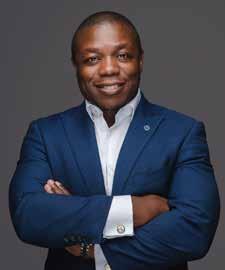
(Environmental, Social, Governance) standards, reinforcing reputational value and long-term viability.
Digital Transformation - Blockchain & AI: Technological adoption is playing a pivotal role in supply chain resilience. Artificial intelligence and blockchain technologies offer unprecedented supply chain visibility, enabling real-time tracking, predictive risk analysis, and smarter decision-making.
Across the Middle East, digital solutions are being rapidly integrated into logistics and procurement operations. These innovations not only enhance efficiency but also serve as strategic tools for building agile, future-proof supply chains.
Across Saudi Arabia and the broader Middle East, procurement professionals are embracing a new mindset. Cost is no longer the sole priority. Strategic risk assessments, regional supplier diversification, ethical compliance, and digital integration are becoming the standard.
At CIPS, we see this evolution firsthand. Our members are adopting forward-thinking frameworks to ensure procurement practices align with national goals—whether that’s Vision 2030 or regional diversification targets.
In an era marked by trade volatility, resilient supply chains are no longer optional—they’re essential. The organisations that thrive in this environment will be those that adapt swiftly, act ethically, and lead with digital and strategic foresight.
As procurement leaders, our challenge— and opportunity—is to drive this transformation. The future of supply chains is resilient, ethical, and digitally enabled. The time to act is now.





















































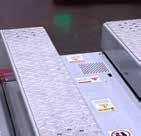


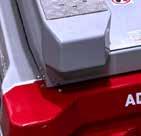




























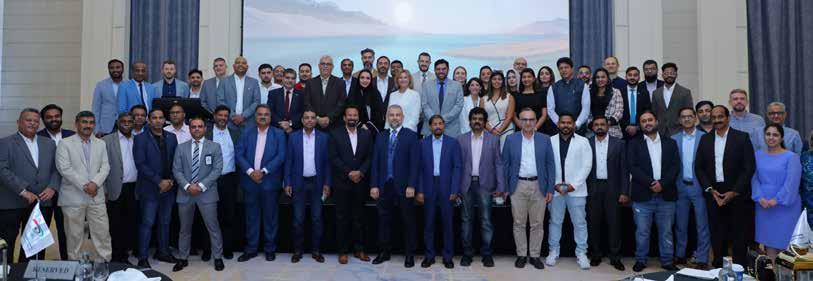
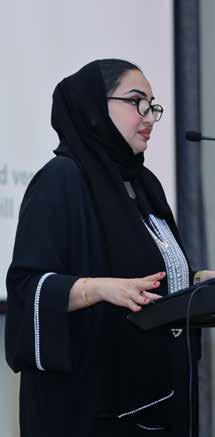
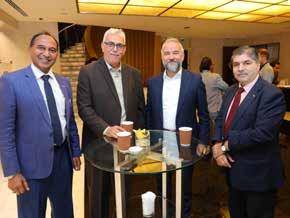
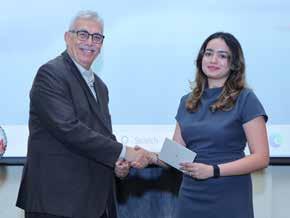





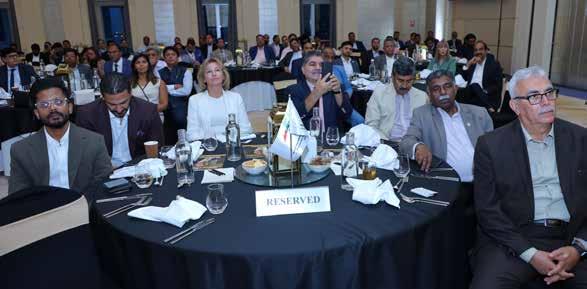

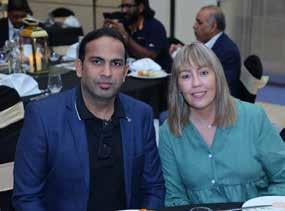

An important gathering of NAFL board and team members came together at Shangri La Hotel, Dubai on 14th May 2025. Its President, Nadia Abdul Aziz, listed 2024-25 achievements and various events organised by the group which has grown exponentially. Upcoming events were also mentioned followed by networking and an elaborate dinner. We take you behind the scenes.
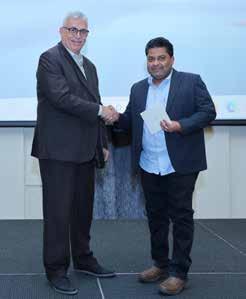
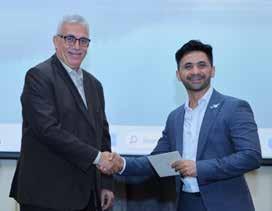
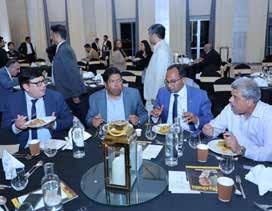

Leading industry figures reveal insights on the next frontier of the HR tech landscape
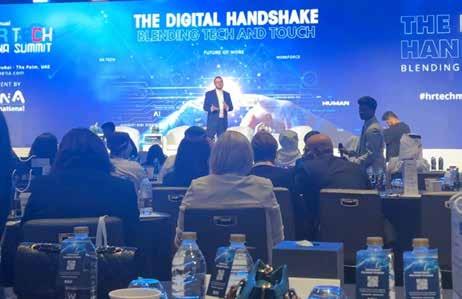
The HR Tech MENA 2025 summit opened in Dubai with a bang as organisers of the event QnA International brought together the industry’s top solution providers to explore the future of work in Dubai. CHROs, CTOs, CIOs, VPs of HR and IT, and digital transformation experts from across the region gathered in the city to hear from acclaimed industry leaders, share best practices, discuss challenges, and explore solutions that will define the workplace of tomorrow.
Sidh NC, Director, QnA International welcomed dignitaries and attendees, “We are pleased to host HR Tech MENA Summit 2025 for over a decade now, the region’s most premier and prestigious event that addresses the most significant present-day subject close to the hearts of visionary HR leaders – applying Tech Transformation for the well being of the organisation and its people. Your contributions have driven MENA’s tech transformation, positioning the region at the forefront of progress. With AI adoption soaring to 76%, our commitment to employee experience, strategic workforce planning, and digital upskilling remains stronger than ever. We invite you to benefit from the insights shared by industry leaders both regional and international borne out
of years of experience. The lessons we will learn from the extraordinary line-up of speakers is sure to inspire and transform the HR practice in the region.”
Dr. Oleg Konovalov, listed among the Global Gurus Top 30 in Leadership and the Global 100 Inspirational Leaders, alongside figures like Bill Gates and Elon Musk delivered the opening keynote address on ‘Raising Visionary Leaders of Tech: The Role of HR as People Visionaries.’ The inspirational speech bringing global insights to MENA highlighted the difference between Leaders who look to the future and Managers who oversee the present. Konovalov said AI can never replace leaders since the information at its disposal is limited to the past and present. He encouraged CHROs and COOs to become leaders and visionaries.
Renowned personalities from our region and beyond, added a new dimension to the overall theme ‘Digital Handshake: Blending Tech and Touch’.
Mohammed A Bukhary the Deputy Mayor of Holy Makkah for Human Capital from Makkah Municipality shared deep insights from the heart of our region as he delivered the C Level keynote: Leading in a digital world - Managing Millions: A closer look at Makkah’s Digital Handshake
with Human and Tech. Bukhary’s unique perspectives brought to life a remarkable chapter in the digital transformation of Saudi Arabia as he narrated Makkah Municipality’s revolutionary story. Makkah Municipality has embraced technology to align people, processes, and programs with organizational goals to drive sustainability and growth and thereby manage millions of visitors around the year. This is a remarkable achievement for a city that welcomed more than 75 million visitors during Ramadan last year with the assistance of 120,000 workers, 32,500 health practitioners and 13,549 cleaners.
James Tarbit, Global Head of Employee Experience at Ipsos, shared his views on ‘Talent and Tech – 3T’s of the Workforce World: Trust, Talent & Technology’. Backed by Ipsos’ research, he stressed that trust in AI remains a barrier despite its perceived benefits. “AI adoption requires cultural change,” he noted, suggesting greater transparency and involvement to ease fears about fast-paced change. Tarbit, a specialist in leadership and employer branding, drew from his global experience including a leadership stint at HSBC, where he led people analytics and transformation initiatives.
Faisel Bashir, Market Leader at Mercer Talent Enterprise, presented on ‘Revolutionizing Workforce Management with Data-Driven Strategies’. Emphasizing the shift toward analytics-driven HR, she explained how organizations can leverage data for decisions that promote well-being, performance, and engagement. As the region’s first holder of a Master’s in Positive Psychology and with over 20 years in the field, Bashir’s experience bridged human needs with technological solutions—core to thriving in the “Human Age.”
Over the two-day summit, CHROs and senior leaders from the UAE, GCC, Europe, Singapore, and India contributed to the rich agenda through keynote sessions, masterclasses, and case studies. Industryspecific showcases offered practical insights into how HR tech is being deployed across sectors to solve real-world challenges.
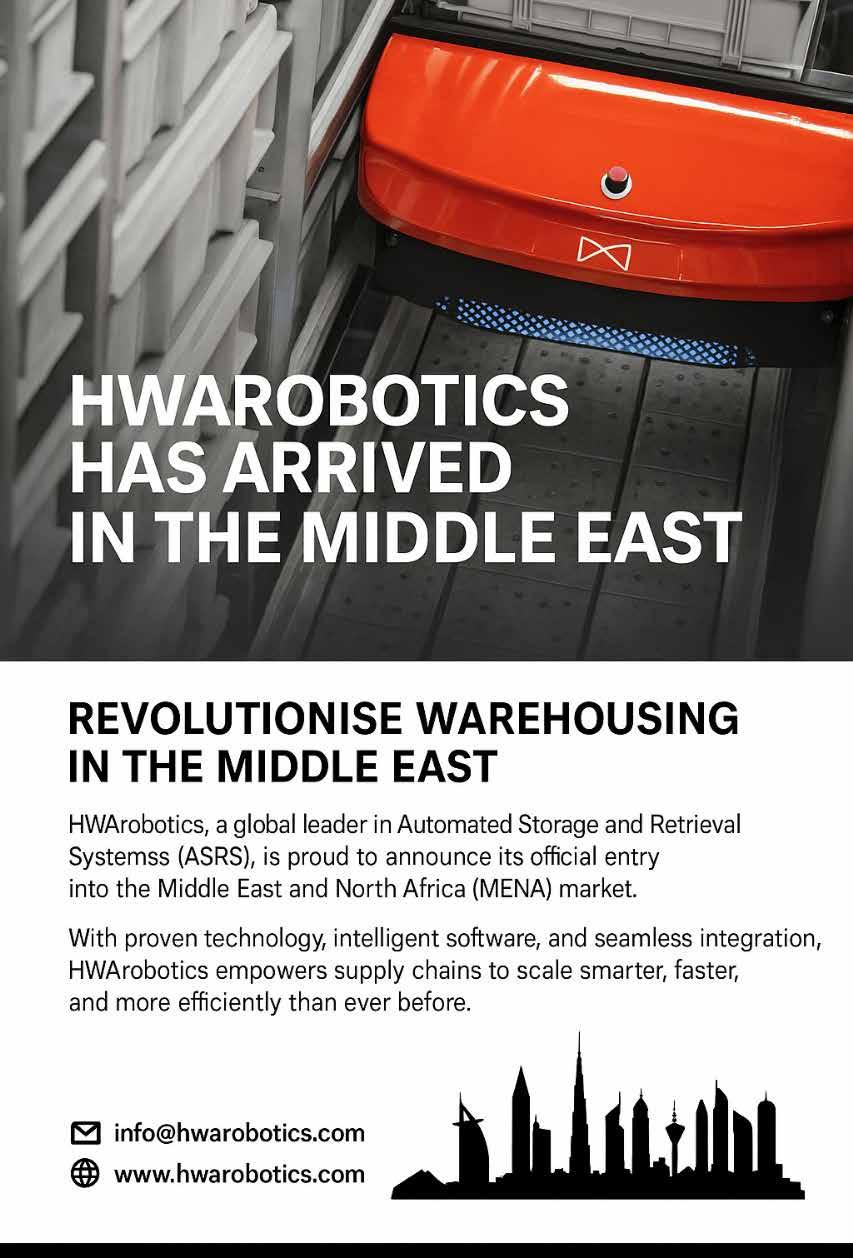
As automation becomes a necessity across the Middle East’s logistics and warehousing sectors, CIMC Tianda Intralogistics has officially expanded into region, backed by over 45 years of experience, 1,800+ global projects, and a reputation for delivering high, customised intralogistics solutions.
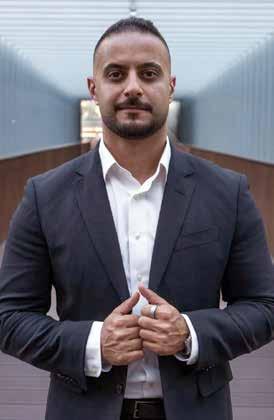
To drive this regional expansion, Aron Schiller has been appointed Sales Director for the MEA region. In this role, he will lead business development and customer engagement efforts, supporting regional partners in implementing state-of-the-art warehouse automation technologies.
“The Middle East is undergoing a profound transformation,” said Aron. “We’re not just delivering products — we’re providing fully tailored solutions to meet the unique needs of each customer.”
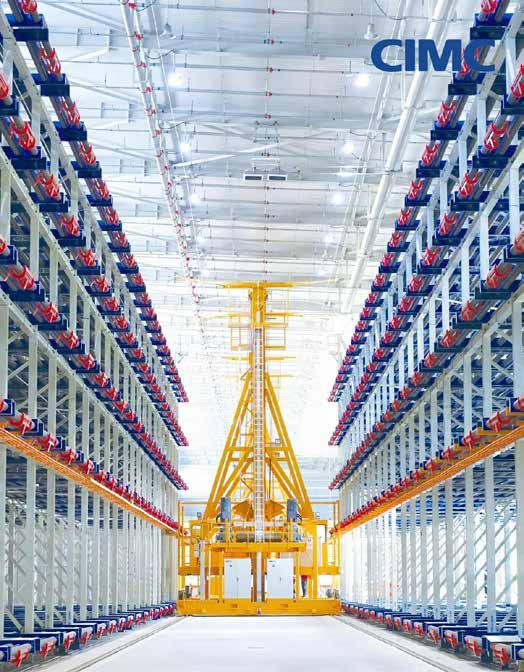
CIMC Tianda Intralogistics’s comprehensive portfolio includes Automated Storage and Retrieval Systems (ASRS), Conveyor systems, AGV/AMR solutions, Digital twin software, and Warehouse control systems. Its end-to-end integration approach supports a wide range of industries, including e-commerce, 3PL operations, cold chain logistics, retail and wholesale, food and beverage, pharmaceuticals and healthcare, industrial and petrochemical sectors, as well as express logistics such as post and parcel last mile delivery.
“Our strength lies in our ability to deliver complete, turnkey solutions — from planning and consultation to implementation and long-term support,” Aron added.
Jennifer, Marketing Director at CIMC Tianda Intralogistics, emphasized the company’s long-term commitment to the region:
“The Middle East is a strategic priority for us,” she said. “With growing demand for scalable automation and the momentum behind Vision 2030, this is the ideal moment to bring our global expertise and reliability to local partners.”
Following its successful participation in the Saudi Warehousing and Logistics Expo 2025, CIMC Tianda Intralogistics is focused on building lasting partnerships across the Middle East. The company is committed to delivering the capabilities, innovation, and excellence needed to support the region’s ambitious growth goals.
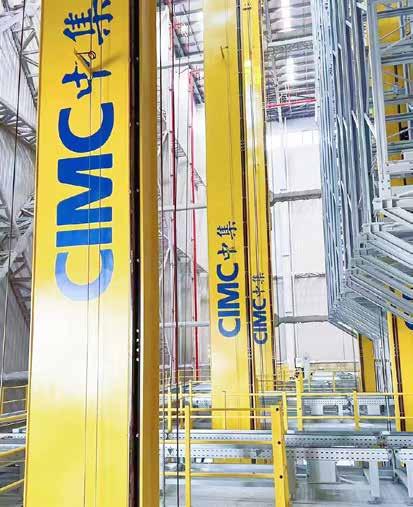

With the Middle East investing over $150 billion in airport infrastructure by 2040, the region is becoming the global hub for aviation transformation. Italy is stepping in with world-class companies delivering nextgen solutions in airfield lighting, baggage handling, digital automation, sustainable infrastructure, and passenger experience.
From AI-powered baggage morphology detection by Leonardo, to smart airfield lighting by OCEM, and frangible radar-safe fencing by FibreFENCE, the Italy Pavilion at the recently concluded Airport Show 2025 featured the very best of Italian engineering, sustainability, and design.
Speaking at the event, Valerio Soldani, Director of the Italian Trade Agency in Dubai offers insight in to trade relations between both countries. Abigail Mathias: How would you describe the current state of trade relations between Italy and the UAE?
Valerio Soldani: Trade relations between Italy and the UAE have never been stronger. In 2024, total trade between our two nations reached an all-time high of €9.9 billion, up 13% from the previous year. Italian exports alone amounted to €7.8 billion, marking an impressive 19.4% growth year-on-year, while imports from the UAE totalled €2 billion.
Italy now ranks as the UAE’s 10th largest supplier globally, and the second within the EU. But beyond the numbers, what’s really taking off is a deeper, more strategic partnership that’s increasingly driven by shared priorities in innovation, sustainability and next-gen infrastructure, particularly in sectors such as aviation, design and fashion.
AM: What sectors have seen the most significant growth in bilateral trade over the past few years?
VS: Growth has been strong and broadbased. Technology and mechanical engineering exports, critical for infrastructure and airport development, reached €1.5 billion, rising by 27%. This category is especially important as the UAE and wider Gulf region enter a new era of airport transformation. Italian companies are responding with cutting-edge, efficient, and sustainable solutions that meet the region’s rising infrastructure demands. Other sectors have also surged: fashion
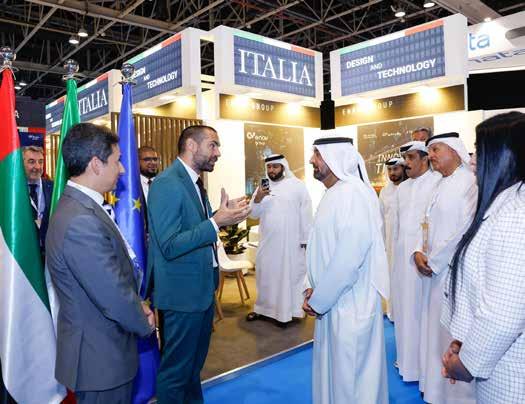
“Italy ranks as the UAE’s 10th largest supplier globally”
exports climbed to €1.1 billion (+35%), jewellery reached €1.2 billion (+12%), electrical equipment rose to €615 million (+19%), and furniture to €367 million (+23%).
To further build on this momentum, the Italian Trade Agency will host a dedicated Italy Pavilion at the upcoming Airport Show in Dubai, organised in collaboration with the Italian Embassy and Air Tech Italy, bringing together a dynamic group of 25 companies showcasing future-ready airport innovations.
AM: Which Italian industries have shown the most potential in the UAE market recently?
VS: While fashion and jewellery continue to perform strongly, it’s Italy’s prowess in technology, mechanical engineering, and industrial design that’s quickly rising to the forefront.
For instance, the Middle East is investing over $150 billion in airport infrastructure, with megaprojects such as Dubai’s $35 billion Al Maktoum expansion and Saudi Arabia’s $50 billion King Salman International Airport. By 2040, the region’s airports are expected to handle over
1.1 billion passengers annually. In this landscape, Italian companies are offering high-value solutions, from smart lighting systems and digital airside operations to sustainable terminal design and access control technology. This integrated, designforward approach is helping Italian firms stand out and secure long-term roles within the region’s growing economies.
AM: How is the UAE responding to Italian innovations in sectors like fashion, food, and technology?
VS: The local market continues to respond with great enthusiasm to Italian excellence across all three sectors. In fashion, Italian brands enjoy a strong reputation and premium market positioning, with local consumers appreciating a healthy mix of heritage and modern design.
In the food sector, the UAE’s evolving lifestyle trends and growing health consciousness have boosted demand for authentic, high-quality Italian products. For instance, the ICE-TruebellSpinneys retail partnership has already resulted in a 17.5% increase in Italian
F&B purchases, bringing brands like Bauli and Novi to more Emirati shelves.
In technology, Italian companies are viewed as valuable partners in the UAE’s pursuit of smart, sustainable infrastructure. Their contributions span everything from AI-driven passenger flow systems to digital twin platforms and green construction methods. This appetite for Italian innovation underscores the alignment between our capabilities and the UAE’s future-focused vision.
AM: What role does sustainability play in trade collaborations between Italy and the UAE, especially in sectors like energy and agriculture?
VS: Sustainability is central to the ItalyUAE trade relationship. As we like to say, “Sustainability is SustainabITALY”.
In energy and infrastructure, Italian companies are driving the green transition with low-impact construction, circular design, and clean technology solutions. This commitment will be clearly on display at the upcoming 2025 Dubai Airport Show, where Italian companies participating in the national pavilion will showcase innovations aligned with international environmental frameworks like CORSIA, from Sustainable Aviation Fuel (SAF) initiatives to zero-emission materials and resource-efficient systems. Meanwhile, in agriculture, Italy supports the UAE’s growing demand for nutritious, responsibly sourced foods, ranging from dairy and baked goods to mineral water, while helping reduce its heavy reliance on food imports.
AM: What are the biggest challenges Italian companies face when entering or expanding in the UAE market?
VS: Italian companies often need to navigate complex regulatory processes, understand cultural and consumer preferences, and find the right local partners to ensure success. The Italian Trade Agency helps companies every step of the way, from market entry to business development. For instance, we facilitate participation in highimpact events, where Italian companies can meet key stakeholders, showcase their solutions, and gain invaluable exposure.
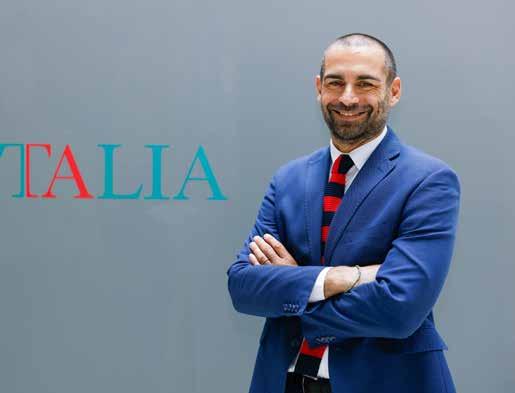
In 2024, total trade between Italy and the UAE reached €9.9 billion, up by 13%. Italian exports alone amounted to €7.8 billion, marking an impressive 19.4% growth year-on-year.
Localisation is key, adapting both products and strategies to align with the UAE’s unique and dynamic market landscape.
AM: What support does the Italian Trade Agency offer to small and medium-sized Italian enterprises looking to export to or establish a presence in the UAE?
VS: ITA offers end-to-end support tailored to the needs of SMEs. This includes market research, legal and regulatory guidance, matchmaking services, and visibility through promotional platforms. We create real opportunities to connect with decisionmakers, like at the upcoming Airport Show, where we’re bringing 25 Italian companies to form the largest national presence on the floor. From digital retail collaborations to B2B networking, we’re focused on helping Italian companies build long-term, impactful relationships in the region. Our approach is hands-on, strategic, and always focused on helping “Made in Italy” find the right fit in a fast-moving market like the UAE.
AM: How do events like Expo 2020 Dubai and other global showcases impact trade relations between Italy and the UAE?
VS: These platforms are instrumental. Events like Expo 2020 Dubai serve as major
accelerators for trade and brand visibility, strengthening economic and cultural ties. Italy is present year-round at key trade fairs and exhibitions, from Gulfood and WETEX to the Dubai International Boat Show and the Watch & Jewellery Middle East Show in Sharjah. These events allow us to put Italian excellence on display, create new partnerships, and identify opportunities for collaboration across a wide range of sectors.
AM: Are there emerging sectors— such as AI, green energy, or digital infrastructure—where Italy and the UAE might collaborate more closely?
VS: Absolutely. These are areas where our bilateral partnership is evolving most rapidly. Italian companies are already contributing to the digital transformation of airports in the UAE, using AI for smarter passenger flow, digital twins for operational efficiency, and automation for improved service delivery. In green energy, Italy is building a growing presence in solar, hydrogen, and sustainable materials. These initiatives align perfectly with the UAE’s long-term goals for economic diversification and carbon neutrality. Our shared commitment to innovation makes this collaboration a great fit as both nations work toward a smarter and more sustainable future.
At the recently concluded Seatrade Maritime Logistics Middle East held from 6–8 May 2025, at the Dubai World Trade Centre, one of the key conversations explored how satellite connectivity is reshaping maritime operations. We bring you thought provoking insights from Nabil Ben Soussia, Group Chief Commercial Officer at IEC Telecom and Huma Qureshi, General Manager of Emirates Shipping Association.
The maritime industry is in the midst of a digital transformation, reshaping how vessels communicate, operate, and stay connected. Digital communications are now essential to ensure operational continuity, crew welfare, and cybersecurity resilience. In the UAE, the maritime sector contributed approximately AED 129 billion to the country’s GDP in 2022, reflecting an 18% increase from the previous year. This substantial growth underscores the sector’s pivotal role in the nation’s economic diversification efforts and its emergence as a global maritime hub. As the sector navigates this shift, four key trends are steering the course for maritime digitalisation.
One of the most significant shifts in maritime communication is the rise of hybrid satellite networks, particularly the integration of Low Earth Orbit (LEO) satellites. As of 2024, over 75,000 vessels are connected to LEO networks such as Starlink Maritime, delivering high-speed, lowlatency internet access to vessels operating across international waters. However, relying solely on LEO networks is not possible, especially in regions like the GCC, where national licensing constraints limit LEO availability within territorial waters.
To maintain seamless operations, vessels are turning to intelligent network management systems that combine LEO and traditional Geostationary Earth Orbit (GEO) services. Platforms like IEC Telecom’s OptiView allow operators to manage bandwidth across multiple networks, monitor real-time
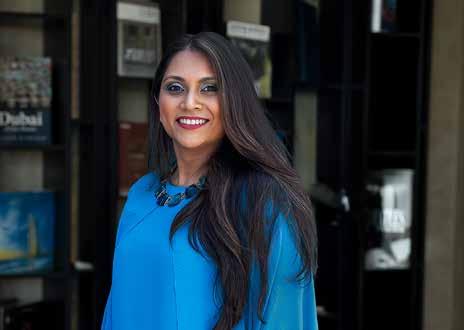
usage, and assign traffic priorities based on operational needs. For example, highbandwidth applications may be routed through LEO links, while GEO satellites ensure critical communications remain uninterrupted. Intelligent network management has become a non-negotiable pillar for ensuring uptime, safety, and cost efficiency.
According to the Q3 2023 Seafarers Happiness Index, internet access is now the leading factor influencing crew retention, surpassing even shore leave and wages. Connectivity plays a vital role in supporting mental well-being, enabling seafarers to stay in touch with family, access entertainment,
and participate in online training.
UAE’s Federal Decree Law No. 43 of 2023 established regulations around seafarer rights, including access to healthcare and protection from abandonment. While internet access is not yet mandated, many vessel operators have voluntarily introduced comprehensive CSR programs that include onboard connectivity and digital literacy training. Systems like OptiView enable granular control over data usage through voucher systems and browsing access policies, balancing cost with crew satisfaction. As the new generation of seafarers expects high levels of connectivity, digital welfare is becoming integral to recruitment and retention strategies.
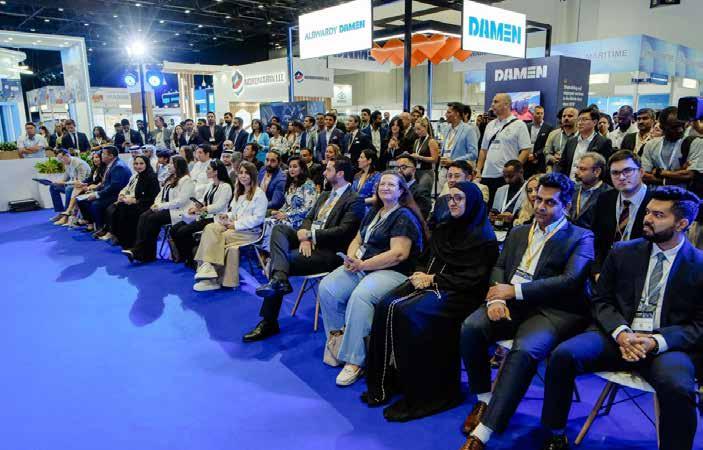
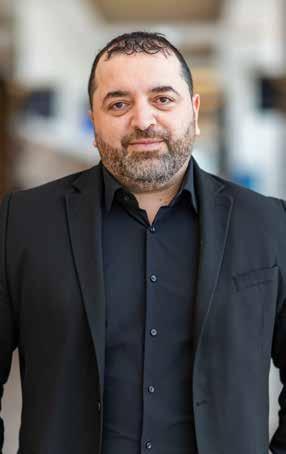
Modern ships rely on interconnected systems for navigation, monitoring, and communication, increasing their exposure to cyber threats. The misuse of personal devices remains one of the primary sources of onboard vulnerabilities, highlighting the need for robust network segregation.
Platforms such as OptiView act as the first line of defence by separating crew and corporate traffic, detecting threats in real-time, and enforcing content and usage policies. With cyberattacks growing in scale and sophistication, the risks extend beyond data breaches to potential manipulation of navigation or engine systems. Whether it’s falsified GPS data or hijacked surveillance systems, the operational consequences can be severe. Network management tools must therefore include cybersecurity functions as a standard feature, moving from passive monitoring to active protection.
The UAE has emerged as a maritime digitalisation leader, driven by a blend of government foresight and industry collaboration. Flagship developments like Khalifa Port—slated to expand from 2.5 million TEUs to 15 million by 2030— demonstrate the nation’s ambition to
anchor its role in global trade. Dubai is ranked first in the Arab world as a maritime powerhouse and eleventh globally in the 2024 Leading Maritime Cities report. The country’s automation-driven approach to logistics and its embrace of AI-powered systems reflect a broader push toward smart port eco systems.
Organisations like the Emirates Shipping Association (ESA) are playing a crucial role by encouraging sector-wide collaboration through initiatives such as the recent ESA Congress held during UAE Maritime Week. These platforms bring together maritime professionals to discuss regulatory changes, cybersecurity standards, and digital best practices. This cooperative ecosystem not only enhances operational agility but also ensures that UAE-based maritime players remain resilient amid shifting global trade dynamics.
Digitalisation is no longer an optional upgrade for maritime operations; it is the foundation of a more robust, efficient, and secure industry. With strong leadership from the UAE and continued collaboration across the industry, maritime communications are entering a new era—one where digital infrastructure is just as critical as physical hulls and engines.
There are days that stay with you. Not because of the glitz or the guest list, but because of the conversations that happened when no one was looking. Laughter over coffee. Honesty over lunch.
That’s what happened on May 15th.
When we invited our customers, partners, and supply chain leaders to the Palace Downtown in Dubai for our MEA Customer Day 2025, we weren’t sure how it would feel. Would it be another corporate gathering where everyone nods politely? Would we fall into the familiar rhythm of presentations, case studies, and applause? Or would we manage to create a space that felt more like
a gathering of peers—people who’ve been through the same fires, who know the same frustrations, who can speak openly?
We hoped for the latter.
And that’s exactly what unfolded.
The morning started quietly. People arrived early, some of them greeting familiar faces, others wandering the room, checking their phones, sipping coffee. It wasn’t loud. There was no stage music, no big countdown. Just conversations. You could feel it—a kind of nervous energy, the sense that this might not be business as usual.
Rachid Labrik, Vice President, Slimstock MEA stood up to open the day. He didn’t need slides. He just stood there and talked
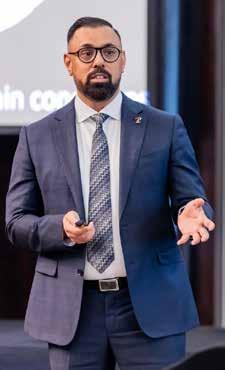
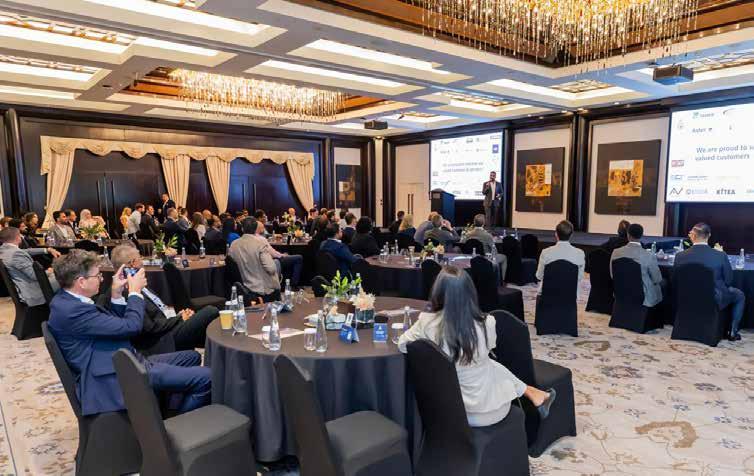
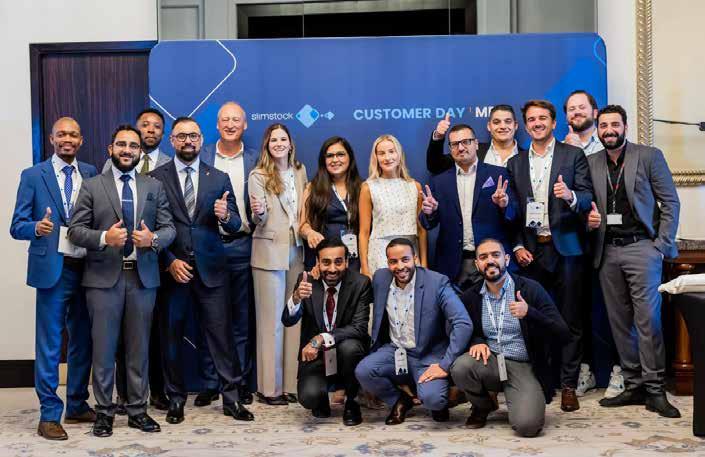

from the heart, and told the room what we’d been feeling for months:
“This isn’t about us. It’s about you. Let’s talk. Let’s be honest. Let’s challenge each other.”
It was an invitation, not a presentation. And when a words are coming from the heart, they land and they land hard.
From that moment on, the walls came down.
Eric van Dijk, CEO, Slimstock, carried that tone into his reflections. Eric’s style is always personal, always real. He shared
what being privately owned means for Slimstock, not in financial terms, but in human terms. It lets us invest in conversations, in communities, in the things that build lasting change.
He reminded us all that while software is part of the solution, it’s never the whole solution. What matters most is what happens in rooms like this one, where leaders open up, share stories, and listen deeply.
That listening theme threaded through the entire day.
When MMI/ELR took the stage to share their journey, they didn’t bring a case study. They brought honesty. They talked about the exhaustion of firefighting, the endless loops of reactive decision-making, the frustration of knowing you need to change but not knowing where to start.
Their move to integrated business planning wasn’t a clean, textbook story. It was messy. It was human. It was filled with doubt and discomfort. But they stuck with it. And what they gained wasn’t just better forecasts, it was clarity, alignment, and a renewed sense of purpose for their teams.
Winner’s Mauritius shared their own transformation story, equally honest, equally brave. For them, it wasn’t about software or KPIs. It was about their people. Their store teams deserved better processes. Their customers deserved better experiences. And the pride that came back when operations started running smoothly again.
They started withthree stores that went live in less than 3 months and now accelerating the deployment. And listening to them, you could feel the room reflecting on their own teams, their own processes, their own silent frustrations.
And then came Sandeep Walia, Chief Transformation Officer, Slimstock, presenting a session on Formula 1 and S&OP. It was unexpected, and maybe that’s why it hit so hard. Sandeep didn’t show
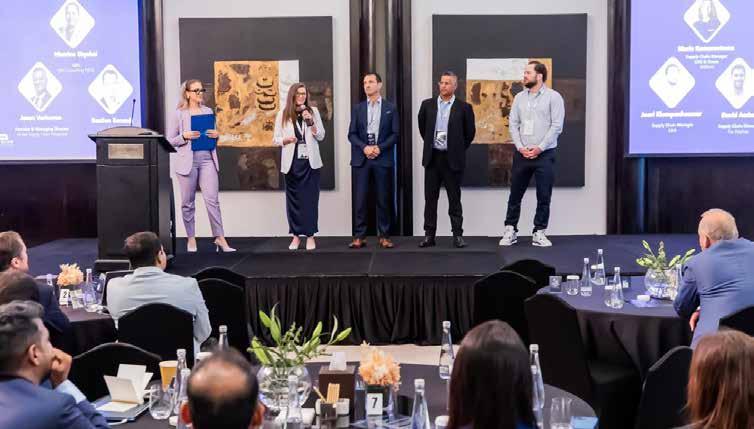
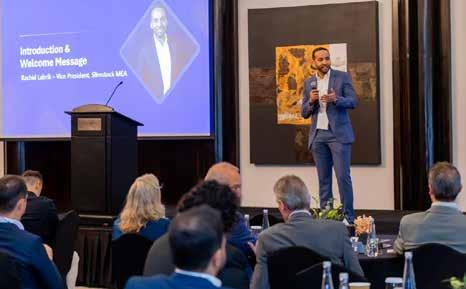
supply chain dashboards. He showed race cars, pit stops, strategy rooms. And he asked the room, “Why does your supply chain move at walking speed when your market is moving like Formula 1?”
It was a question that lingered. One that sparked debates. People weren’t just listening, they were challenging themselves, each other, us.
Later, Daan Majoor, Chief Technology Officer, Slimstock shared where the company is heading. And again, it wasn’t about features. It was about feelings. About making the planner’s day easier. About building technology that feels like an invisible assistant, not another layer of complexity.
He talked about AskRolf, your supply chain co-pilot, about how we’re making machine learning and AI approachable, not intimidating. And most of all, he talked about our responsibility to keep technology human—to let people stay in control, to make space for judgment, experience, and gut feeling.
But perhaps the most personal moment of the day came when we shared the launch of the Supply Chain Professionals Club (SCP Club) presented by Ioana Bruma, Events and Partnerships Manager, Slimstock. There was no hype. No grand reveal. Just an invitation.
An invitation to join a room where leaders
can speak off the record. Where they can bring their toughest questions, their hardest lessons, their boldest ideas—and find peers who will listen, challenge, and collaborate.
We announced the Club alongside leaders from Altavant Group, MMI, Bidfood, The Petshop, ENY Consulting and Signature Media LLC as founding members. Not as a marketing initiative. But as a community. Built by and for the leaders shaping supply chain in this region.
The conversations that followed? They weren’t about tools or systems. They were about leadership, about the eagerness and mindset to learn and be a part of this community.
We had moments that made it all worth it. The small wins. The value-rich sessions. That’s what we’ll remember most.
Not the slides.
The people.
The stories.
The trust.
For us at Slimstock MEA, this day wasn’t about showing what we do. It was about reminding ourselves, and our community, that the most powerful thing we can create together isn’t a platform. It’s a space. A space for honest conversations, shared learnings, and the courage to do things differently.
We left inspired. We left grateful.
And most importantly, we left knowing that these conversations are just the beginning.

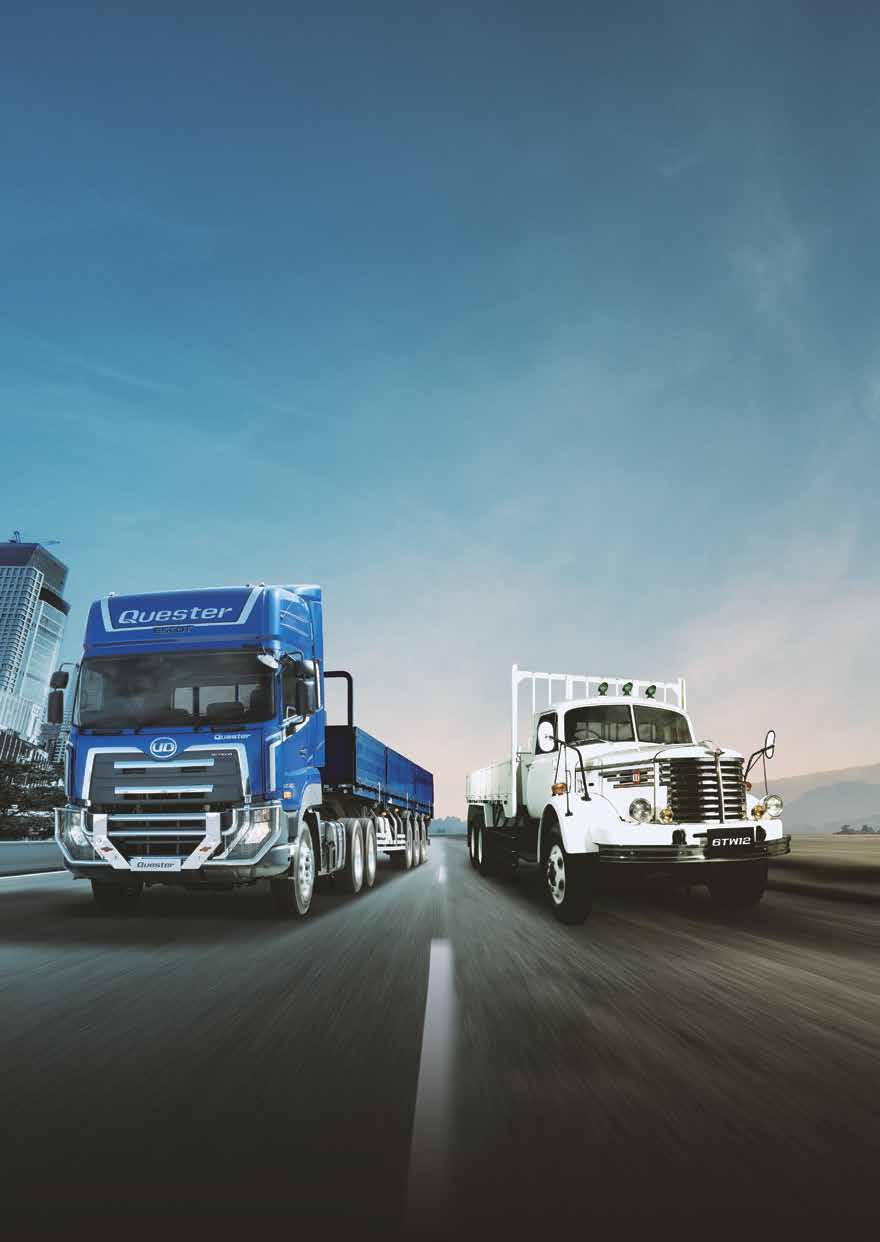
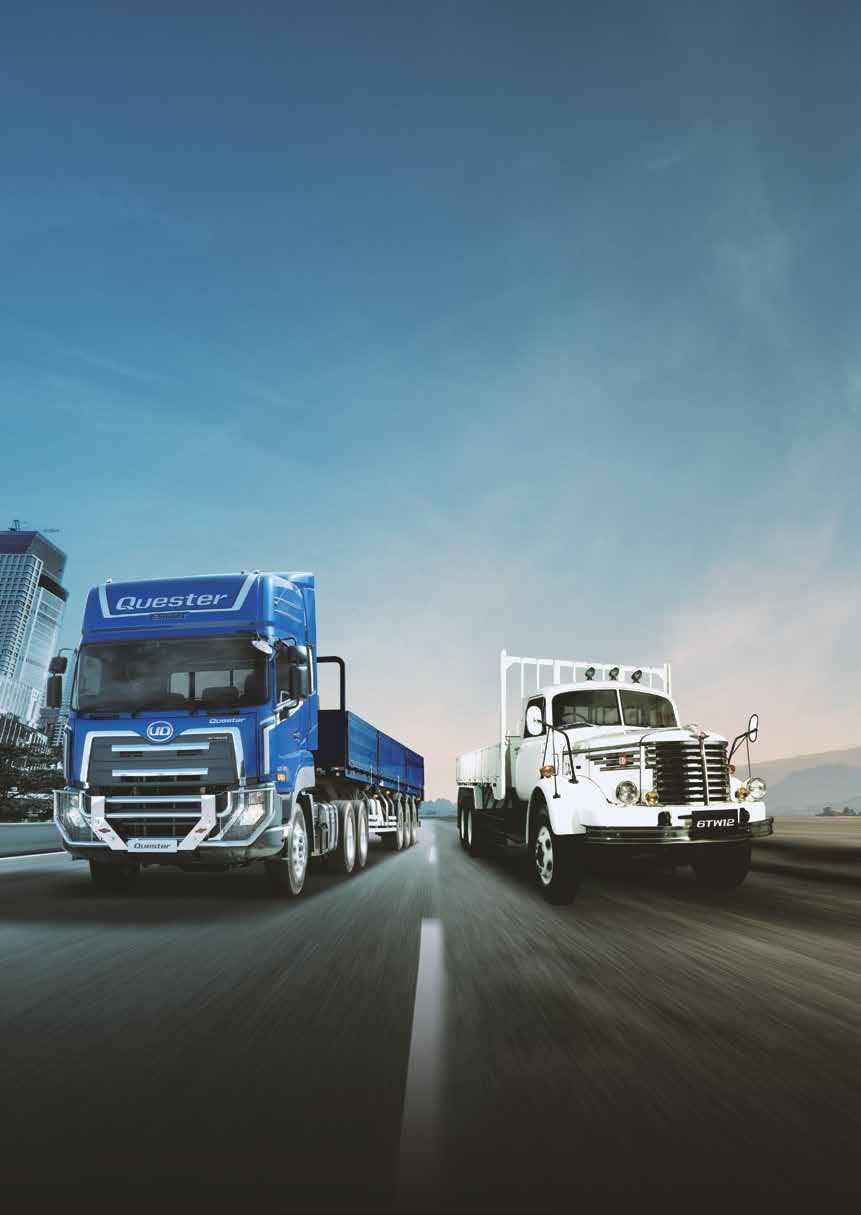

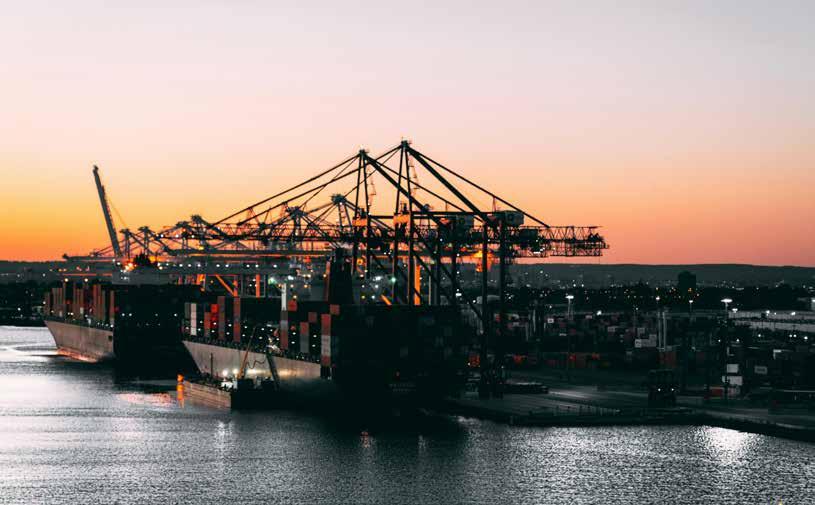
When it comes to maritime operations, the Middle East offers unique advantages such as its ideal location with easy access to critical regions like Europe, efficient transportation and logistics facilities, stable infrastructure, and a diversified economic portfolio.
The supply chain globally has been hit hard by rising infrastructure and transportation costs, fragile geographical situations and economic instability. These conditions and many more have forced many manufacturers to implement out-of-the-box solutions for the reliance and continuity of their supply chains. Among many are the Reshoring and Near Shoring practices, where the manufacturer transfers their production processes to their home market or near it.
Reshoring is a process where manufactures shifts its manufacturing operation from another country to country where it belongs. The manufacturer has a long history of managing and maintaining manufacturing operations abroad, and now the entire manufacturing life cycle is performed at their home country.
Reshoring able the manufacturer to fully control operation, costs, and human
resources and improve quality in the final finished product costs. It also helps boost the local economy by creating jobs, improving human resource skills and enhancing local manufacturing.
While reshoring has advantages, the decision to restore must be made by estimating all critical factors, including costs, capabilities and logistics. Otherwise, the manufacturer will fail to retain its market and financial position.
Nearshoring is a practice where manufacturer relocates its manufacturing operations to nearby region. The main purpose of nearshoring is to bring outsourced operations as closely as possible to the home country to tackle problems related to long distances and increase reachability.
Nearshoring is in contrast to offshoring, where business operations are located in distant markets or regions; nearshoring enables the execution of business operations near the country.
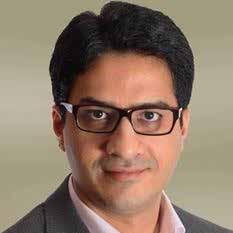
By Murtaza Naqvi
The author has two decades of experience in managing end to end manufacturing supply chain operations in multiple geographies with prominent industrial giants.
Let’s discuss some driving factors between the rise of reshoring and nearshoring Drivers for Reshoring
n Reshoring enables manufacturers full control over supply chains and tackle disruptions. The manufacturers can effectively plan various alternatives without dependency and without being affected by overseas laws, such as payment and exchange rate regulations.
n There has been an increase in global production costs, such as labor. Meanwhile, rising energy costs are also seen as a worldwide production cost factor.
n Reshoring also enables manufacturers to introduce and market their products in less time. By manufacturing in the home country, they can save time spent on transportation and prevent related disruptions.
Drivers for Nearshoring
n Global uncertainties are resulting in increased tariffs and regulatory barriers, affecting the manufacturers’ total operational costs. This forces manufacturers to relocate their operations to nearby regions where they can leverage good trade relationships, increased stability and less risk sentiment.
n Supply chain issues due to transportation costs and time availability create infinite delays in material sourcing and supplying finished goods. Selecting a nearby region with fewer disruptions helps to tackle these issues.
n Increasing labor costs in traditional competitive markets also force manufacturers to relocate their manufacturing operations in nearshoring, where labor costs are much more competitive
n Nearshoring also enables manufacturers to shorter time to market for selling their products to fulfil customer demands and protects their customer base & market.
Some common differences between Reshoring & Nearshoring, are explained below
Location The first and foremost difference is the location. In reshoring, manufacturing
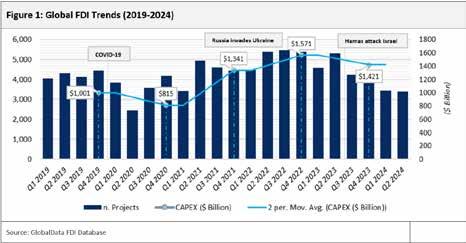
operations are shifted to the home country from abroad. All the support functions, such as planning, marketing and maintenance, are also shifted to the home country.
On the other hand, nearshoring is a practice where business operations are transferred to nearby or neighboring countries.
Labour costs Shifting operations in the home country in reshoring also requires the manufacturer to hire local human resources in all the operational departments and obey labor laws. In this situation, the labor costs are commonly higher and have no advantage related to labour cost.
Nearshoring, enables to benefit from lower labour costs. By strategically selecting a region where labour costs are much lower than the home country, nearshoring can greatly help to cut labour costs.
Operational Control Reshoring allows manufacturers direct control over their manufacturing activities. Manufacturers can effectively control various departments, such as sourcing and marketing. They can effectively make policy decisions and change their sourcing on a per basis.
On the other hand, nearshoring creates a dependency on the supplier, which is also governed and affected by the local regional situations. They cannot freely implement change in existing policy and must check for regional ground realities.
Given their vision for economic diversification and a supportive environment, the Middle East has emerged as a strong hub for manufacturing activities.
For reshoring and nearshoring, the Middle East can offer unique advantages, such as
Location Middle East has an ideal location with easy access to many critical regions, such as Europre, making it ideal for nearshoring activities. It has efficient transportation & logistics facilities, enabling manufacturers to ship their goods in less time than traditional nearshoring regions.
Stable Infrastructure The Middle East is characterized by strong & stable infrastructure, such as energy and transportation. It enables manufacturers to execute their manufacturing activities of any type and at any scale, providing manufacturers with an opportunity to perform a variety of operations.
Diversified Economic Portfolio
Many Middle Eastern countries are moving away from traditional economic solutions and are actively pursuing ways to increase & stabilize their financial portfolio. Among many, it also includes providing a supportive environment for foreign investors.
Manufacturers can use the Middle East for nearshoring activities due to its diversification initiative and take advantage of the facilities that it is offering.
Technological Development Many Middle Eastern countries, such as Saudi Arabia and UAE, are adopting technology as a necessary part of their economy. They are investing in innovative trends, such as Artificial Intelligence and promoting them as their standard policy in economic development.
Manufacturers can leverage technological initiative in the Middle Eastern region for their manufacturing benefits, because today’s manufacturing processes actively use technology to increase their productivity and quality. Nearshoring can also help manufacturers in adopting technology and solving underlying problems related to it.

The UAE’s first academy of its kind is designed to revolutionise professional seafarer education in the region.
Through advanced simulation, real-world expertise, and global maritime standards, Octanta aims to equip students with the skills needed for success in commercial shipping, superyacht management, and naval operations. Global Supply Chain caught up with Aleksei Makarov, the Founder of Octanta Maritime Training Academy and a strategic partner with over 15 years of experience in major oil and gas corporations to find out more about his venture.
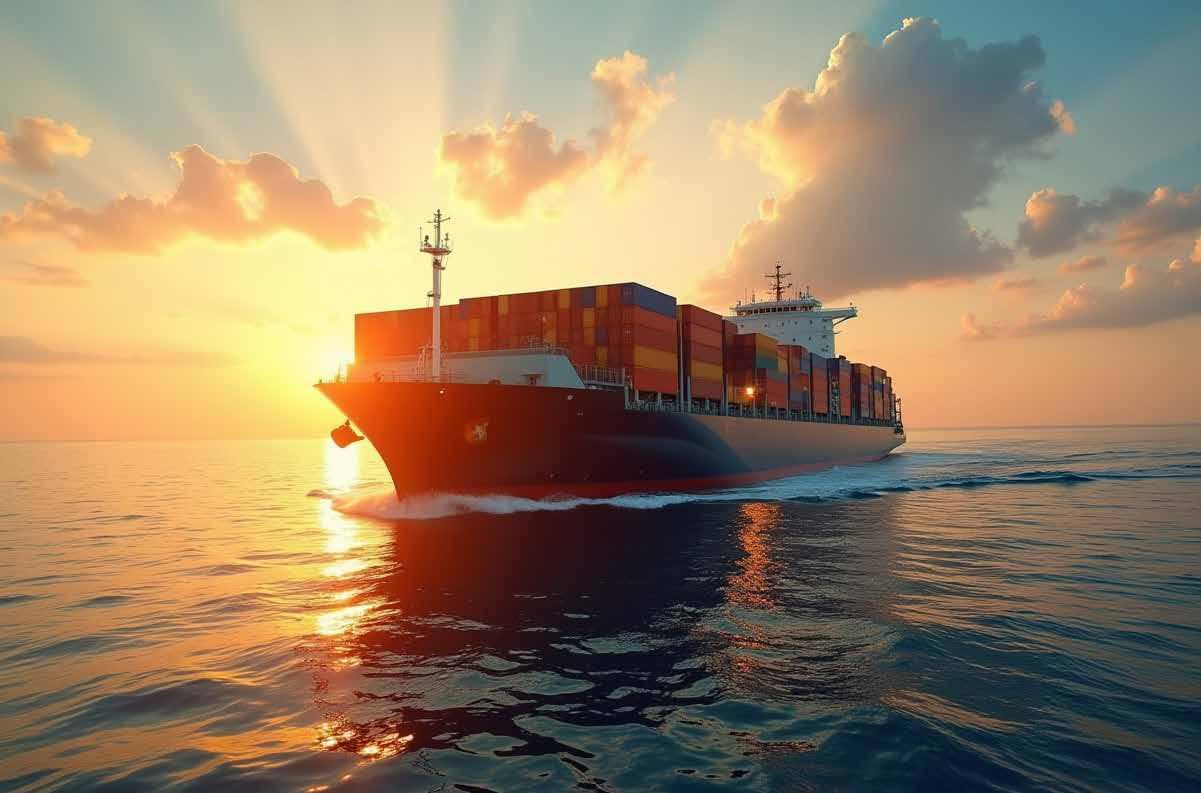
Octanta Maritime Training Academy, a next-generation maritime education institution, opened its doors in Dubai on April 24, 2025. The academy is located at Galleries 2, 702, Jebel Ali, Dubai. Octanta Maritime Training Academy is a state-of-the-art maritime education institution committed to training the next generation of seafarers. The academy integrates cutting-edge simulation technology, real-world instruction, and globally recognised maritime standards.
With more than a decade in the maritime sector; Makarov brings a strong operational and business foundation to the world of seafaring. As CEO of Octanta Holding, based in Dubai, he oversees yacht operations in many aspects. Under his leadership, the company has earned recognition for its reliability, quality, and professional approach.
He aims to align education with realworld industry needs - training professionals who understand technical operations and business logic. His insight into finance, compliance, and logistics ensures that graduates are prepared for the modern demands of yacht and vessel management.
GSC: You’ve had a solid run in oil and gas before moving into maritime. What inspired the transition, and how did your early corporate experience shape how you built Octanta from the ground up?
AM: Before founding Octanta, I spent over a decade in oil and gas, managing complex projects worldwide. The industry taught me structure and accountability at scale, but at some point, I realised I wanted to create something more personal. The sea had always been more than a place of work for me - it was a way of thinking and living. Transitioning into maritime wasn’t just about business, it was personal. I saw a space where we could bring discipline from the energy sector into an industry that thrives on passion but needs stronger foundations, especially in training.
GSC: When you started Octanta Holding and later the Maritime Training Academy, what core values or principles did you insist on embedding into the DNA of the company?
AM: When building Octanta, I was clear about one thing: values are not marketing, they are practice. For us, it’s Safety, Professionalism, and Sustainability. Safety because there’s no room for error at sea. Professionalism because we work with highnet-worth clients who expect nothing less than excellence. And Sustainability - not just environmental, but also in how we manage resources, people, and long-term growth. Our instructors have spent decades at sea, leading real crews and handling real crises.
GSC: You’ve emphasised the importance of aligning maritime education with real-world industry needs. In your view, what are the biggest gaps in maritime training today, and how does Octanta aim to fill them?
AM: Too often, maritime training focuses on ticking boxes for certification. That’s not enough. We saw that the market needed professionals who could step aboard and immediately contribute. That’s why 70% of our training is hands-on. We use Wärtsilä simulators for engine and navigation training, and real-world scenarios
pulled from yacht operations in the Med and GCC. Courses are reviewed every 6 months to stay aligned with IMO and MCA standards. We aim to produce leaders and professionals, not just license holders.
GSC: The maritime world is evolving rapidly. What are the three most critical skills you believe every yacht management professional must have today – beyond the technical knowhow?
AM: In today’s maritime world, technical skills are the baseline. What sets top professionals apart is their adaptability, their ability to manage complex client relationships, and to lead during crises. Whether you’re rerouting due to weather, handling a last-minute guest request, or dealing with regulatory surprises, flexibility and calm leadership are essential.
GSC: As the CEO of a global yacht management company based in Dubai how do you split your focus between strategy, operations, and training?
AM: My day rarely looks the same. Mornings are for strategic thinking – new markets, service improvements. By midday, I’m in operational mode, reviewing reports, meeting with captains, trainers, or clients. Evenings are about people – developing the team, mentoring, planning future courses and programs. And whenever possible, I carve out time for family, it keeps everything grounded. Whether it’s a quiet dinner or just an hour together, it helps me stay balanced and focused. The split? Roughly 40% strategy, 30% operations, 20% leadership, and 10% family time that I protect as much as I can. I stay closely involved in the academy because training is where our future value comes from, but I also know that success means nothing without those close to you.
GSC: How does Octanta Maritime Academy ensure its students are not only technically proficient but also prepared for the logistical, financial, and compliance-related challenges of the modern maritime world?
AM: Octanta Maritime Academy offers over 370 specialised courses covering the full
Octanta Maritime Academy offers over 370 specialised courses covering the full breadth of the maritime industry.
breadth of the maritime industry. We don’t follow a single, rigid program - instead, we train professionals across multiple sectors: from yacht and vessel management to engineering, logistics, compliance, and crew operations. Each course is designed to reflect current industry standards and challenges, combining technical proficiency with essential knowledge in finance, international regulations, and operational planning. For those new to the field, we provide career support - from personalized consultations to direct connections with employers. This comprehensive approach ensures our graduates are equipped to succeed in various maritime roles, both at sea and ashore. 95% secure employment within three months of completing their training.
GSC: Operating out of Dubai, how does Octanta position itself in a global market? What makes the UAE an ideal hub for maritime training and yacht operations?
AM: Dubai is a gateway for global maritime growth, made possible by the vision and leadership of the UAE’s rulers. Their focus on innovation, education, and international business has led to the creation of worldclass infrastructure, positioning the UAE as a key link between East and West. This strategic location offers access to major markets and creates an ideal environment for industries like maritime training to flourish. Octanta builds on this foundation, providing high-level education rooted in global standards, while remaining deeply connected to the region. Our students benefit from both international perspective and local opportunity, allowing them to excel worldwide.
GSC: How do you see digital tools, AI, or automation reshaping yacht and vessel management in the next five to ten years – and how is your academy preparing for that future?
AM: Like many other industries, maritime is undergoing rapid transformation through artificial intelligence. AI is a driving change across all areas of the sector, from predictive maintenance and route planning to safety systems, crew performance analysis, and even the marketing of private yacht services. At Octanta, we see this not as a distant future, but as a present reality. Our training already includes advanced digital navigation and engine room simulators, and we are developing dedicated AI modules. We equip our students to embrace these technologies while reinforcing the value of human expertise and leadership, which technology alone cannot replace.
GSC: How do you personally define leadership in the maritime context, and what leadership traits do you try to cultivate in your trainees?
AM: Leadership in maritime is about presence. At sea, your team follows confidence, fairness, and calm under pressure. I teach trainees that leadership isn’t about knowing everything - it’s about knowing yourself, and being someone others can rely on, whether in a storm or during a quiet sunrise.
GSC: What’s your long-term vision for Octanta Maritime Academy and Holding? When someone looks back 10 or 20 years from now, what do you hope they say about the impact you’ve made?
AM: My goal is for Octanta to set the benchmark for maritime excellence - a place where true professionals are developed. In the next 20 years, I want our name to be associated with raising the standards of yachting and maritime training, both in the region and globally. We aim to lead, not follow - to drive progress in how the industry thinks, operates, and evolves. When people say, “I trained at Octanta,” I want that to carry weight, to reflect quality, leadership, and a commitment to the future of maritime.



CTW Global will provide many valuable opportunities to connect with a wide range of individuals who share a common interest in the industry, products, and services being showcased.





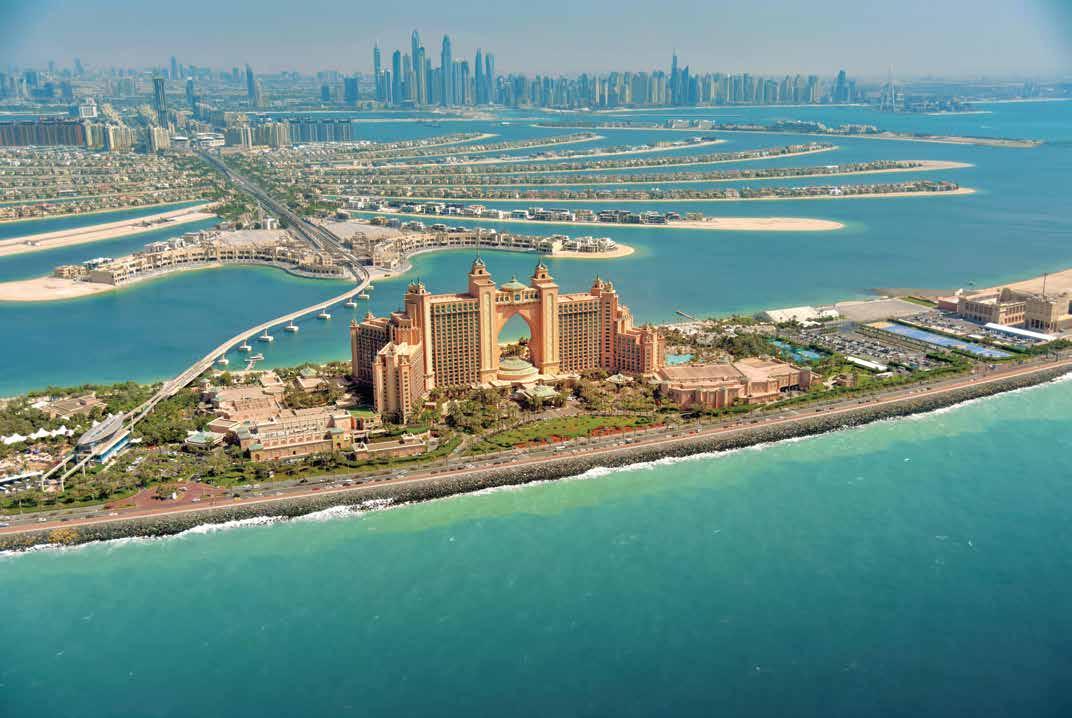


By Yuvraj Thakur, MD & Commercial Director, Normec Verifavia
The shipping industry is facing significant regulatory challenges as it moves toward decarbonisation. The International Maritime Organisation (IMO) has set ambitious targets, including reducing carbon intensity by at least 40% by 2030 and cutting total annual greenhouse gas emissions by at least 70% by 2040.
Decarbonisation and a new era of stringent environmental regulations are creating a momentous challenge for the maritime industry. Targeting sustainable maritime fuel use and carbon intensity reduction, the EU’s regulatory framework is requiring shipping companies to transform their operational procedures and planning strategies to ensure accurate emissions data reporting and compliance to avoid financial penalties.
Shipowners and operators are facing a pivotal year in 2025, as the initial implementation and reporting dates and requirements of the linked FuelEU Maritime, EU ETS (Emissions Trading System) and EU MRV (Monitoring, Reporting and Verification) regulations converge for the first time to impact operations.
Requiring ships to comply with specific greenhouse gas (GHG) intensity limits, FuelEU was implemented on 1st January this year and applies to vessels exceeding 5,000GT engaged in commercial activities and calling at ports within the European Union (EU) and European Economic Area (EEA). Meanwhile, the first verified reports for EU ETS were due by 31st March, putting a price on CO₂ emissions, with the operator required to have sufficient EU-emission allowances (EUAs) in their Maritime Operator Holder Account for transfer to the authorities. Emissions for EU ETS are reported through the EU MRV system, which commenced from 2018.
The monitoring and reporting of GHG emissions must be robust, transparent, consistent and accurate for the EU ETS to operate effectively. However, the multiple regulations and a myriad of complex issues
can cause shipping companies to make mistakes in inputting data, resulting in miscalculations of emissions reporting, and risking severe penalties, jeopardising compliance status and causing reputational damage.
There is increasing pressure on the industry, as the shift towards decarbonisation accelerates in the coming years. Central to the European Commission’s climate strategy is a stepping stone approach, in which emissions-reduction requirements, deadlines and financial penalties will become more stringent at mandated intervals until 2050. This phased
adoption means emissions applicable under EU ETS may not be the same as emissions reported EU MRV. In addition, tens of thousands of smaller ships will probably be obliged to report emissions with their inclusion in the ETS to be reviewed in 2026.
Shipping companies can ensure compliance with the complex regulations

by partnering with a trusted partner for continuous independent emissions verification. At Normec Verifavia, we leverage our expertise and provide leading tools to ensure data is accurately logged, reported and verified to mitigate the risks. Backed by our understanding of detailed regulatory provisions and advanced compliance strategies, we can also identify specific areas of confusion within the regulations which could result in costly errors.
Key to understanding the overall requirements of the regulations is the importance of compliance through sustainable fuels, such as biodiesel (FAME, HVO) and bio-LNG, with the two frameworks ensuring the full lifecycle of fuel and environmental impact, from production to consumption, is considered. Under EU ETS, standard fuels require tank-to-wake emissions allowances, with verified sustainable fuels considered zero emission. FuelEU is a complementary regulation which uses well-to-wake lifecycle assessment, encouraging adoption of alternative fuels which have lower GHG emissions than required thresholds for the
avoidance of penalties.
Fuel prioritisation based on GHG intensity also plays an important role in FuelEU compliance. Ships engaged in international voyages are permitted to allocate lowcarbon fuels in their GHG intensity calculation. All fuels that meet the relevant criteria can be considered as contributing to half of the energy used during these voyages. This provision also applies to similar fuels used in voyages arriving at or departing from ports located in outermost regions (OMR), but it should be noted that OMR Derogation for FuelEU is not the same as EU ETS derogation.
Further topics which should be understood for accurate fuel tracking and GHG intensity calculation is Global Warming Potential (GWP) and Bunker Delivery Note (BDN) based reporting. There are two GWP
FuelEU is a complementary regulation which uses well-to-wake lifecycle assessment, encouraging adoption of alternative fuels which have lower GHG emissions.
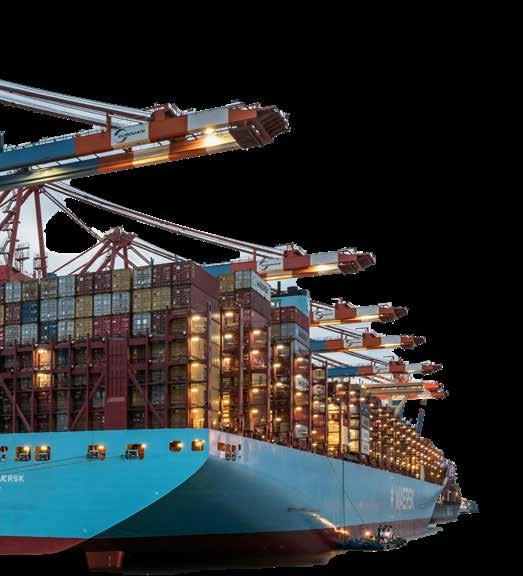
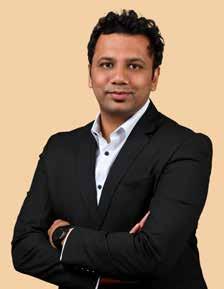
values which can be used based on the IPCC’s (Intergovernmental Panel on Climate Change) AR4 or AR5 (Assessment Reports). The GHG intensity calculation will vary depending on which AR is used as the basis, impacting the penalties paid.
BDN-based reporting and verification supports regulatory compliance and reduces reporting errors as it links fuel properties directly to consumption data, with each biofuel bunkered varying in LCV and GHG intensity.
In terms of the charter party agreement, now validated by BIMCO and others, and charter clauses, it is essential to have clarity regarding who pays for the emissions bill and to understand the aggregated compliance balance for surcharge calculation for non-compliance.
The regulatory details and challenges represent one key aspect of the decarbonisation challenge for shipping, alongside the need for significant vessel technology and infrastructure development, the high cost of transitioning to lowcarbon fuels, and requirement for increased collaboration across the entire supply chain.
For a sector which underpins 90% of global trade and is currently responsible for 3% of global emissions, the impact of the turning of the tide as the shipping sector pays the price for ship emissions will have huge ramifications – both for the industry and the global economy.
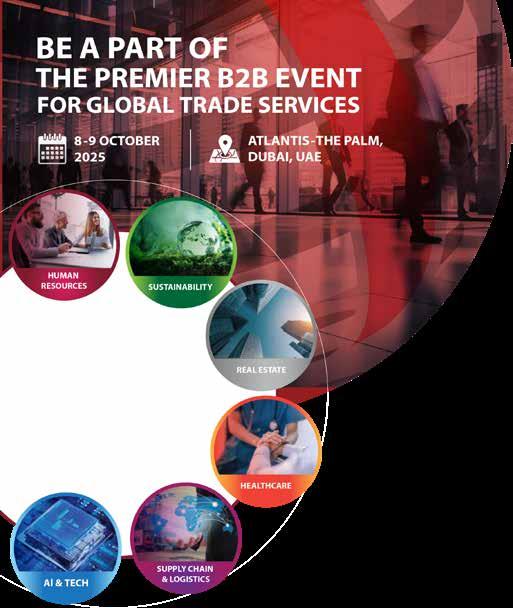
Hosted by MIE Events DMCC, CTW Global 2025 is not just a business event — it is a trade ecosystem.
The platform seamlessly integrates a high-level summit, international exhibition, B2B/B2G matchmaking, industry workshops, and tailored seminars. Taking place in Dubai from October 8-9, In Atlantis, the Palm, the global trade capital of the Middle East, this year’s edition is set to spotlight high-growth sectors, with a special focus on supply chain & logistics, Sustainability, HR and Real estate.
As global businesses increasingly look to diversify supply chains and expand into high-growth regions like Africa and the Middle East, CTW Global serves as a bridge — connecting Chinese, African, Gulf, Asian, and Western enterprises under one roof.
Dubai is more than a strategic location — it’s a trade powerhouse. As per recent UAE government data:

In an era of shifting trade dynamics, rising geopolitical complexities, and accelerated digitalisation, CTW Global 2025 emerges as a bold and timely response — a platform engineered to facilitate seamless crossborder trade, government collaboration, and investment partnerships across emerging and developed markets.
At the helm of this global expansion is Zahoor Ahmed, Vice President of Strategy & Partnerships with MIE Group. With over 20 years of experience in the global events industry, Zahoor is a recognised architect of mega-events that bridge continents and accelerate economic diplomacy.
• The UAE’s non-oil foreign trade hit AED 3.5 trillion (USD 953 billion) in 2023, marking a 12.6% year-on-year growth.
• It ranked 11th globally in exports and 13th in imports, reflecting its growing relevance in global commerce.
• The Jebel Ali Port, operated by DP World, is the largest seaport in the Middle East, serving over 3.5 billion consumers across Asia, Africa, and Europe.
• The UAE has comprehensive economic partnership agreements (CEPAs) signed with India, Indonesia, Türkiye, and several African nations, opening up low-tariff, high-volume trade corridors.
These figures underscore why CTW Global’s positioning in Dubai is not incidental — it is intentional, tapping into a well-oiled trade infrastructure and visionary economic policy framework.
Behind CTW Global 2025 stands MIE Groups, a leading global event organizer with over
25 years of experience in facilitating B2B and B2G commerce through strategically curated exhibitions, summits, and trade missions.
Established in 2000, MIE began as a China-Middle East trade enabler. Between 2015 and 2025, it expanded aggressively into Africa and international regions, building an expansive portfolio under the Connecting Trade Worldwide (CTW) banner. Today, MIE operates:
• 8 offices in Asia
• 2 offices in the UAE (HQ in Dubai)
• 2 in Africa
• 1 in Saudi Arabia
• 1 in the USA
Its core divisions include:
• Business Intelligence & Event Division
• Business-to-Government Consultancy
• Destination Management (DMC)
• Travel & Tourism Trade Facilitation Through events like CTW Global, MIE Group helps connect projects with funding, businesses with investors, and small companies with international markets.
n Qatar Airways Cargo, IAG Cargo and MAB Kargo Sdn Bhd (MASkargo) have announced their intention to launch a Global Cargo Joint Business, which, subject to regulatory approval, will enable the carriers to further enhance existing service levels to customers and partners across the global air freight market.
The strategic collaboration will bring together the combined expertise and infrastructure of three leading players in the air cargo industry and is aimed at creating significant customer benefits.
A streamlined product offering, enhanced connectivity, faster transit times, and new routing opportunities across their combined extensive networks will deliver greater value and service flexibility to customers worldwide. In parallel, the parties are jointly working at developing industry-leading harmonised safety and security standards for their customers.
This ground-breaking trilateral partnership will significantly improve the accessibility and efficiency of air freight, enabling customers to expand their global air freight. By combining their resources, Qatar Airways Cargo, IAG Cargo and MASkargo plan to build a truly connected, more agile cargo network that will address the evolving needs of global trade and logistics.
Mark Drusch, Chief Officer Cargo at Qatar Airways Cargo said: “Today marks a significant milestone in our ongoing efforts to redefine the global air cargo landscape. This agreement will bring together three strong players to offer unparalleled service and
n In a boost to India’s cargo market, Elbe Flugzeugwerke GmbH has partnered with UAE-based Confity Capital Partners to bring next-gen A330 Passenger-to-Freighter aircraft to the country.
Later this year conversions will kick off at EFW’s global facilities, with Jet Freight Logistics leading the charge as the first Indian operator to deploy the freight.
Elbe Flugzeugwerke (EFW), the Airbus freighter conversion specialist, and investment firm Confity Capital Partners are teaming up to capitalise on India’s surging air cargo demand.
Through a new multi-aircraft agreement for the A330 Passengerto-Freighter (P2F) programme, several modern widebody converted freighters will be delivered to India and other emerging markets. The deal marks EFW’s latest expansion into India following its successful rollout of the A321P2F and A320P2F models in 2022.
Conversions under the new agreement will begin in late 2025 at EFW’s Dresden facility and partner sites globally. Jet Freight Logistics, a publicly listed Mumbai-based operator with more than 40 years of experience, will be the first to deploy the A330 P2F in the country.
“We are excited to enter into this strategic partnership with Confity to jointly provide new-generation Airbus converted widebody freighters to the Indian air cargo market,” said Lee London, SVP Marketing & Sales at EFW.

global connectivity, reinforcing our commitment to customer satisfaction and operational excellence.”
David Shepherd, Chief Executive Officer at IAG Cargo said: “This agreement is a testament to our history of bringing businesses together. With years of experience in forging successful collaborations, we understand the real value they bring. This joint business not only unlocks choice and opportunities for our customers but also enhances connectivity for the businesses and industries they serve, further strengthening the role air cargo plays in facilitating global trade.”
Mark Jason Thomas, Chief Executive Officer at MASkargo said: “This strategic collaboration marks a pivotal moment for MASkargo and the air cargo industry. We are excited to partner with Qatar Airways Cargo and IAG Cargo to deliver a new era of value and innovation to our customers.”
The carriers expect to implement the agreement in the near future, subject to first obtaining the necessary regulatory clearances.

India’s air cargo market is expected to grow rapidly in the coming years on the back of continued e-commerce growth, domestic consumption, rising exports and infrastructure improvements.
“Our Airbus P2F programmes can serve as a strong enabler in this trajectory, helping Indian operators and the cargo market maintain their upward momentum with proven aircraft freighter solutions,” London added.
“The A330 platform aligns perfectly with our investment thesis, combining operational versatility with long-term asset value. We look forward to delivering impactful outcomes for our partners, stakeholders and the global aviation ecosystem, ” Sia Ashok, Managing Partner at Confity said.
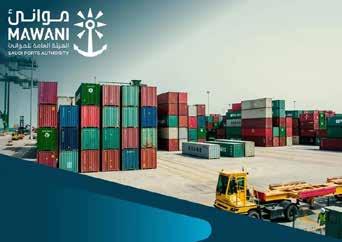
n The Saudi Ports Authority (Mawani) has signed an agreement with Alissa Universal Motors, a subsidiary of Abdullatif Alissa Group Holding, to establish a logistics park at King Abdulaziz Port in Dammam. The project involves an investment of up to SAR 300 million and will cover an area of 382,000 square meters. The park will be dedicated to the import and re-export of vehicles and spare parts.
The agreement was signed by the Acting President of the Saudi Ports Authority, Mr. Mazen bin Ahmed Al-Turki, and the Managing Director of Abdullatif Alissa Group Holding, Mr. Abdullah Abdulmohsen Alissa.
The establishment of the logistics park is part of Mawani’s initiatives aligned with the objectives of the National Transport and Logistics Strategy. It aims to create high-efficiency logistics parks within and beyond the ports, supporting national development and empowering the Kingdom’s economic and social ambitions under Saudi Vision 2030.
The logistics park will include a 7,000-square-meter warehouse for spare parts storage and a logistics area capable of accommodating more than 13,000 vehicles and trucks. This initiative will enhance the competitive advantage and regional standing of King Abdulaziz Port as a logistics hub, provide specialized logistics services, increase private sector contributions to economic development, and promote economic diversification.
It is worth noting that King Abdulaziz Port in Dammam plays a pivotal role in connecting the Kingdom to global economies. The port is distinguished by its advanced infrastructure and integrated logistics facilities, making it an attractive destination for major international companies.
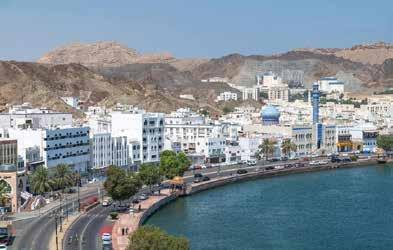
n 18 investment agreements worth over RO100mn were recently signed as part of efforts to expand Oman’s logistics sector and position the sultanate as a regional trade hub.
The deals were announced during Logistics Day 2025 celebrations held under the patronage of Sayyid Saud bin Hilal al Busaidi, Governor of Muscat, and attended by H E Saeed bin Hamood al Mawali, Minister of Transport, Communications and Information Technology.
Organised by Ministry of Transport, Communications and Information Technology, the event focused on the theme ‘Logistics
Technologies and Investment’ highlighting the growing role of advanced technologies in improving sectoral efficiency and competitiveness.
Agreements signed span ports, airports, transportation and warehousing, with several projects integrating smart technology. Among the key agreements were deals with Sohar Port for LNG infrastructure, with Oman Airports to set up a gold refinery and drone research academy, and with Oman SATS to provide discounts on logistics services worth up to 50% until December 31, 2025 supporting export and re-export of perishables.
Abdullah bin Ali al Busaidi, Acting Head of Oman Logistics Centre, said, “We aim for the logistics sector to become the second-largest contributor to Oman’s GDP.”
In 2024, the logistics sector generated RO2.25bn, accounting for 5.9% of Oman’s GDP. The target is to increase its contribution to RO36bn by 2040 under the Logistics Sector Strategy 2040, which focuses on market development, trade facilitation, operational efficiency, Omanisation and logistics technologies.
A major announcement during the event was the signing of a framework agreement for the National Port Community System, aimed at digitalising logistics operations, linking stakeholder platforms, and improving transparency and efficiency at ports and border checkpoints.
An initiative to promote e-bicycles and shared mobility was launched to improve first- and last-mile connectivity to Muscat and Salalah university campuses.





n In a new partnership with Virgin Australia, Qatar Airways Cargo will offer customers an additional 180+ tonnes of cargo capacity per week across Sydney, Brisbane, and Perth — three of Australia’s most critical export hubs.
Qatar Airways Cargo, the world’s leading air cargo carrier, is strengthening global trade connections by expanding its capacity to and from Australia through its new Virgin Australia partnership. Qatar Airways Cargo currently offers more than 240 tonnes of belly cargo capacity each way each week into Australia to key cities Melbourne, Sydney, Brisbane and Perth. With the addition of these Virgin Australia flights, total cargo capacity will increase to more than 400 tonnes each way, each week.
Starting June 2025 Virgin Australia will operate daily Boeing 777 flights between Sydney, Brisbane, Perth, and Doha. With 129 tonnes of cargo capacity each way between Doha and Perth, 30 tonnes each
way for Brisbane and 21 tonnes each way for Sydney, these widebody bellyhold services will bring substantial uplift potential. Effective December 2025, Virgin Australia will add daily Boeing 777 flights from Melbourne with Qatar Airways.
Mark Drusch, Chief Officer Cargo at Qatar Airways Cargo said: “Australia plays a pivotal role in global trade, and it is essential for us to empower its exporters with the best possible connectivity. Our proven expertise in safeguarding sensitive shipments such as perishables and pharmaceuticals positions us as the trusted partner for Australia’s trade ambitions. This partnership with Virgin Australia significantly increases capacity available to Perth, Brisbane, Sydney and Melbourne — a major improvement in global cargo capacity for exporters.”
“With these new services, we are responding decisively to long-standing market demands,” Drusch adds. “The addition of Virgin Australia’s Boeing 777s
more than doubles the airfreight capacity on key routes. It is a bold move, reinforcing Qatar Airways Cargo’s leadership in connecting Australia’s economy to the world’s most dynamic markets.”
Dimitris Politis, Head of Cargo at Virgin Australia added: “We’re thrilled to partner with Qatar Airways Cargo, combining our strong domestic network with their global reach. This collaboration delivers significant new capacity for Australian exporters and strengthens our ability to connect Australian businesses with international markets.”
With two-way trade between Qatar and Australia surpassing AUD 3.4 billion (QR 8 billion) annually, Qatar ranks among Australia’s top trading partners in the Middle East and North Africa region.
Today, one in every 14 air cargo shipments from Australia is entrusted to Qatar Airways Cargo, passing through its cutting-edge Doha hub en-route to the Middle East, Europe, and the Americas.
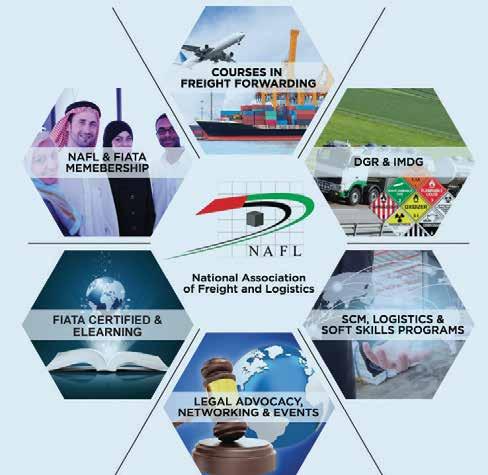

+ The FIATA member certificate
+ Use of the Fiata logo
+ Entry in the FIATA members directory & networking events

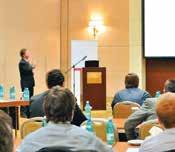


+ Advertising in the FIATA members directory, review and information (FIATA e-Flash)
+ Special Rates for FIATA publication and articles
+ Access to secretariat›s assistance
+ FIATA arbitration code
+ Use of FIATA documents
+ FIATA worldwide member connectivity
+ Talent Connect Worldwide, E-Learning

+ Discountes rates in participating in global and regional conferences
+ Asssistance in case of legal advocacy
+ Discounts for cargo/logistic events and exhibition stands
+ Discount training for NAFL members
+ Training/Certification for regional/international courses
+ Insurance at discounted rates (cargo/liability/medical)
+ Complimentary internship, Skill upgrade and Mentoring & Innovation ideas
+ Discounted supplier rates for industry products

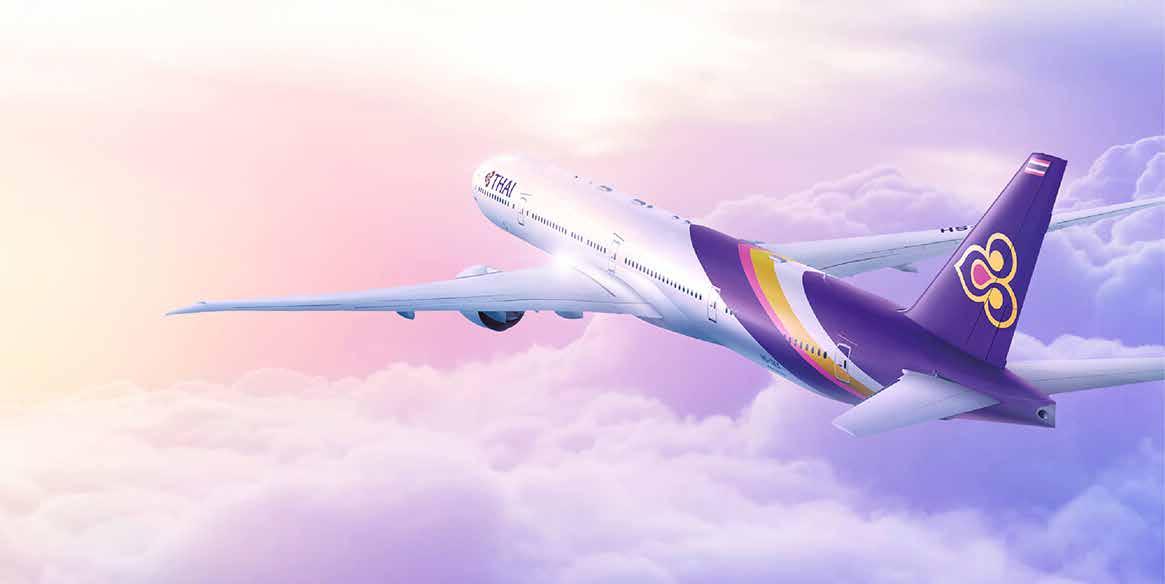
n Thai Airways has selected ECS Group, through its subsidiary HWF Scandinavia and Finland, as its exclusive General Sales and Services Agent (GSSA) in Sweden and Denmark, effective May 15, 2025 — reaffirming a strong and long-standing partnership.
This move underscores Thai Airways’ continued confidence in ECS Group’s proven expertise, powerful global network, and ability to drive commercial success through deep local market understanding. It also marks a new chapter of growth in Northern Europe, with a focus on delivering high-value, high-performance cargo solutions tailored to the needs of customers in the region.
From Scandinavia, Thai Airways operates daily direct services from Stockholm (Airbus A350) and Copenhagen (Boeing 777) to Bangkok, providing seamless connections to the Asia-Pacific region — including multiple daily flights to Australia and major Southeast Asian markets. This robust schedule ensures reliable uplift capacity, speed, and efficiency for customers moving everything from pharmaceuticals and perishables to high-value electronics and VUN (vulnerable) cargo.
HWF will manage all sales and customer service operations, but more than just booking and handling, the team will bring real commercial insight, local engagement, and tailored segmentation strategies that reflect the diverse needs of Nordic shippers. The strength of ECS Group’s local teams on

the ground, backed by a global support structure, ensures Thai Airways remains agile and responsive to every opportunity.
ECS Group has been a valuable partner for Thai Airways across multiple markets, and this new chapter in Sweden and Denmark builds on years of mutual trust and collaboration,” said Thai Airways. “The combination of local knowledge, operational excellence, and strategic thinking that ECS brings through HWF gives us the confidence that we will continue to stand out in competitive Nordic markets — not just as a carrier, but as a true logistics partner.”
“This isn’t just another GSSA appointment,” said Jean Ceccaldi, CEO of ECS Group. “It’s a demonstration of how Thai Airways and ECS Group together deliver value far beyond capacity — through expertise, technology, and a deep-rooted commitment to customer success.”
Torbjörn Lundblad, Managing Director of HWF Scandinavia and Finland, added: “Our team is deeply invested in this market. We know the customers, we understand their cargo, and we’re ready to bring Thai Airways even closer to their needs. We’re honored by the trust placed in us and excited for what’s ahead.”
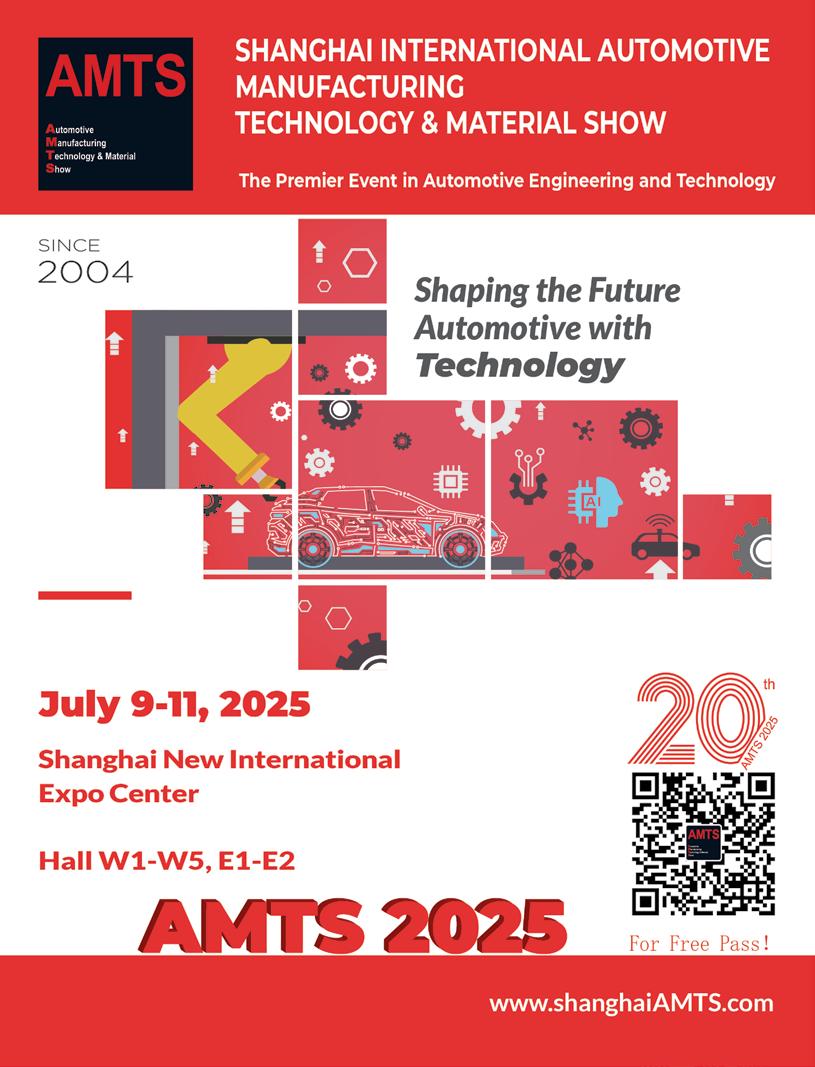
n Aramex a leading global provider of comprehensive logistics and transportation solutions, today announced its financial results for the First Quarter (“Q1’’) ending 31 March 2025.
Aramex delivered modest topline growth in Q1 2025, with revenue up 1% YoY to AED 1.56 billion, driven by revenue growth in Domestic Express (up 13%), Freight Forwarding (up 9%), and Logistics (up 21%), which offset the decline in International Express (down 13%).
The company’s strategy continues to evolve in response to nearshoring-led shifts in logistics flows. As more clients bring inventory closer to consumers, Aramex has seen stronger demand in Domestic Express, warehousing, and regional cross-border services, leading to a recalibration in its
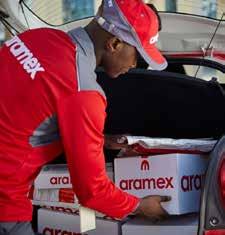
margin profile. Gross Profit was AED 365 million (–8% YoY) and GP margin was 23%, attributed to a lower contribution from international express and an increase in direct costs.
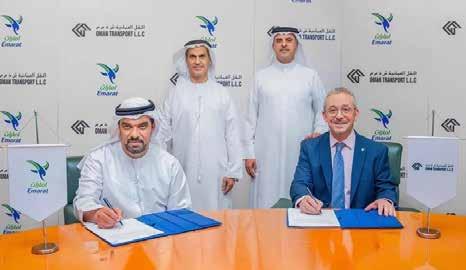
n Emirates Petroleum Company PJSC (Emarat), a pioneer in the UAE’s oil and gas industry, and Oman Transport, a leader in regional logistics and heavy transport services across the Gulf, have signed a contract to reinforce their longstanding partnership, built on operational excellence, trust, and a shared vision for the future of logistics.
As part of the agreement, Oman
Transport is making a significant investment in purpose-built, environmentally friendly, and fuel-efficient IVECO trucks, supplied by Saeed Mohamed Al Ghandi & Sons. These advanced vehicles will ensure the continued reliability, safety, and endurance of Emarat’s fuel delivery operations—proven by a track record of covering over two million kilometers in service.
To deepen this trusted partnership, Oman
The company is navigating this transition with a clear focus on operational efficiency, performance management, and customercentric innovation. While the transition in product mix presents margin volatility in the short term, the Company made good progress with growth in volumes across domestic express and all freight forwarding products, as well as an increase in utilization across its warehouses.
The GCC region remained pivotal, highlighting the strength of Aramex’s home markets. Revenue in the GCC increased 15% YoY in Q1 2025, with the region now contributing 44% of total group revenues, a significant increase from the 39% contribution to total revenues reported at Q1 2024. MENAT, India and Sub-Saharan Africa contribute 20%; Europe and US contribute 20% as well, and Asia Pacific contributes 16% to total group revenues.
Transport will deploy an expanded fleet of next-generation IVECO trucks exclusively for Emarat, further enhancing logistics capacity while underscoring both companies’ shared commitment to operational excellence and sustainable growth.
“This MoU represents more than just a fleet expansion—it’s a shared pledge to reshape the future of fuel logistics in the region. At Al Ghandi Enterprises, we are proud to strengthen our partnership with Emarat, aligning our investment in environmentally advanced vehicles with the UAE’s broader sustainability agenda. Together, we are committed to setting new benchmarks in transport reliability, safety, and innovation,” stated Buti Saeed Mohammed Al Ghandi, Managing Director of, Al Ghandi Enterprises.”
HE Ali Khalifa AlShamsi, CEO of Emarat, said, “At Emarat, we view every partnership as a strategic opportunity to raise industry benchmarks and drive meaningful progress. Our collaboration with Oman Transport is built on years of trust and shared values, and this latest agreement reflects our unified commitment to smarter, greener, and more resilient fuel logistics.”
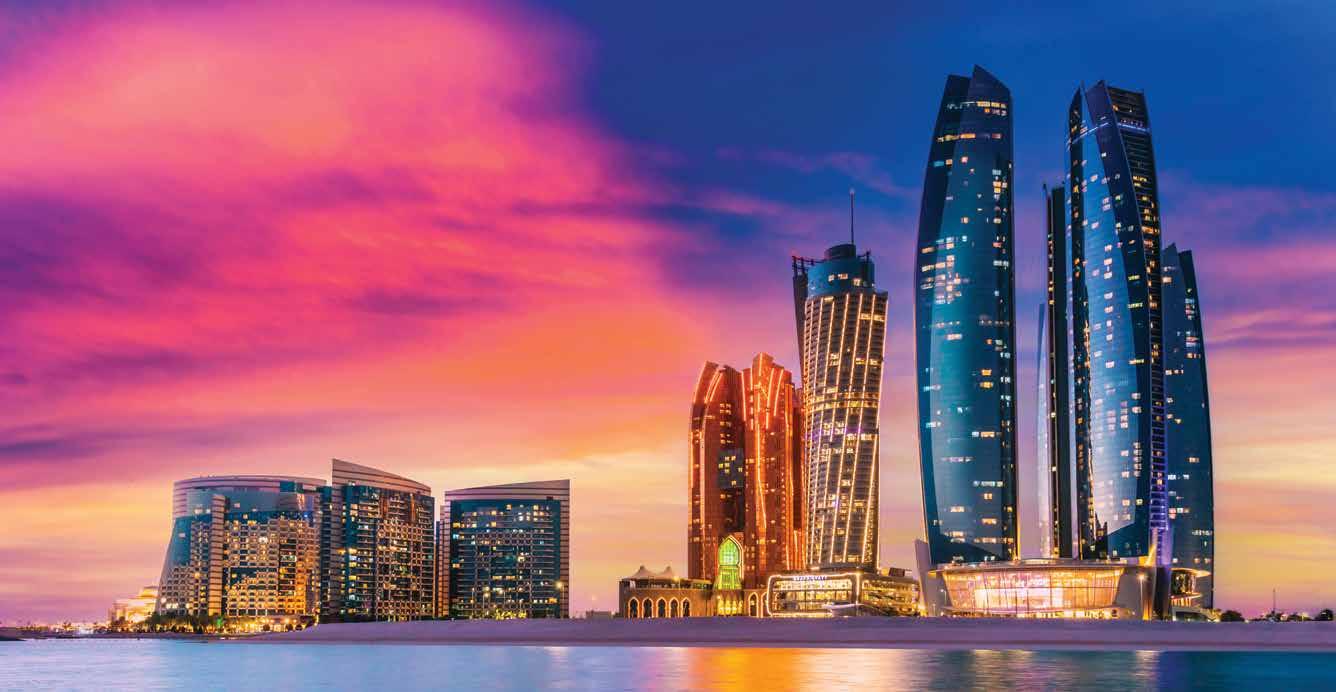










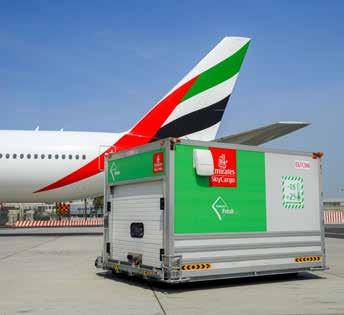
n Emirates SkyCargo delivered an outstanding year, carrying 2.3 million tonnes of goods around the world, up 7% from the previous year as the delivery of 2 new Boeing 777 freighters and 2 wet-leased 747 freighters unlocked capacity to serve surging demand for air transport.
Ably navigating the ongoing challenges in global logistics, the cargo division reported a solid revenue of AED 16.1 billion (US$ 4.4 billion), contributing 13% to Emirates’ total revenue. Cargo yield per Freight Tonne Kilometre (FTKM) increased by 10%, returning to pre-pandemic marketplace levels.
This strong performance reflects Emirates SkyCargo’s ability to win customer preference and serve demand with its specialist logistics solutions, the power and connectivity of Emirates’ global network, Dubai’s world-class intermodal logistics capabilities, and the airline’s ongoing investments in digital technology, infrastructure, and tailored products.
During the year, Emirates added Copenhagen to its freighter network and signed an MoU with Astral Aviation to expand its reach in Africa. Emirates Delivers, an e-Commerce delivery solution, was launched in Saudi Arabia to connect local shoppers with online retailers in the US and UK. As part of its ongoing digitisation push, our cargo division launched eQuote, a digital ‘self-service’ touchpoint that enables customers in 75 countries to request and manage spot quotations anytime, anywhere.
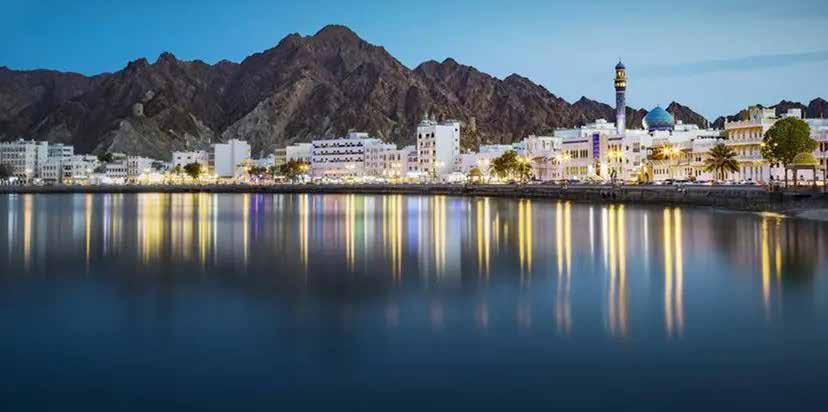
n Oman’s Ministry of Transport, Communications and Information Technology has named the partnership of Kale Logistics Solutions, an Indian-based cargo technology specialist and its local associate Novel Muscat, as the winner of its contract to develop a National Port Community System (NPCS) for the Sultanate of Oman.
A formal agreement to this effect was signed during Oman Logistics Day celebrated in the Sultanate of Oman last month. The NPCS will serve as a unified digital platform, streamlining and integrating operations across Oman’s ports, airports, land ports and free zones. The platform has been described as a step in advancing the nation’s logistics infrastructure. By enabling seamless coordination across all modes of transport, the NPCS is set to enhance international trade and strengthen Oman’s position as a regional logistics hub.
Eng Abdullah bin Ali al Busaidi, Acting Head of the Oman Logistics Center at MoTCIT, emphasised that the Logistics Sector Strategy 2040 is anchored in four strategic pillars driving
Oman’s transformation into a global logistics hub. The first, Market Development, focuses on expanding Oman’s presence across land, sea and air transport markets through targeted projects and initiatives; The second, Trade Facilitation, aims to revolutionise cargo processing and streamline logistics chains across all entry points; The third, Employment and Omanisation, supports workforce development through regulation, training and increased local participation in the logistics sector; and the fourth, Logistics Technologies, promotes the adoption of advanced digital solutions to enhance competitiveness and efficiency in regional markets.
Vineet Malhotra, Co-Founder and Director of Kale Logistics Solutions, commented: “This is an honour for Kale and we are keen to acknowledge the foresight demonstrated by the Ministry in deciding to invest in the National Port Community System. The NPCS in Oman will be a transformative step in our journey to develop the next generation of efficient, sustainable and resilient cargo solutions.”
n Honeywell recently announced the launch of a new gas detector assembly line at the Masdar Innovation Centre in Abu Dhabi, marking a significant milestone in supporting the UAE’s industrial and localisation objectives.
The new assembly line strengthens the UAE’s position as a hub for advanced industrial technology and directly aligns with the ‘Make it in the Emirates’ campaign by expanding local manufacturing capabilities, accelerating technology transfer, and building long-term in-country value.
The new line is dedicated to the assembly of Honeywell’s RAEGuard 3 Series – fixed toxic and flammable gas detectors using advanced sensor technology – as well as the BW Clip Series of portable, single-gas detectors. Designed to protect industrial workers operating in potentially hazardous environments, the next-generation gas detectors assembled at the Masdar Innovation Centre will serve local and regional customers.
Honeywell’s launch of the new line builds on its continued commitment to driving the country’s economic transformation by fostering high-value job creation, upskilling local talent, and delivering smart, sustainable technologies. The new assembly line deepens Honeywell’s commitment to Operation 300Bn, the UAE’s strategic initiative to grow the industrial sector’s contribution to GDP from AED133 billion to AED300 billion by 2031.

“Honeywell has been a longstanding partner of the UAE, committed to empowering local industry and enabling economic diversification,” said George Bou Mitri, president, Honeywell Industrial Automation, Middle East, Turkey, Africa, Central Asia. “The launch of our new gas detector assembly line represents more than an expansion of our manufacturing footprint – it’s a step forward in shaping a smarter, safer, and more sustainable industrial future for the UAE.”
Honeywell opened the dedicated Masdar Innovation Centre in Abu Dhabi’s Masdar City in 2019 to focus on in-country assembly, integration, and testing of advanced automation technologies. The facility enables faster delivery, local customisation, and technical support for customers across the UAE and wider Middle East.
n Poland aims to significantly boost and diversify its QR4.2bn trade with Qatar, targeting growth beyond its nearly QR800mn in 2024 exports with high-end products and advanced technology, Polish head of mission Tomasz Sadzinski has said.
“I think we’re doing a great job, but the potential is obviously significantly larger,” he told the Gulf Times on the sidelines of the recently held National Flag Day of Poland and the Day of the Polish Diaspora.
While Liquefied Natural Gas (LNG) currently represents Qatar’s primary export to Poland, Sadzinski expressed optimism about future Qatari offerings. He sees that Qatar’s aim to diversify its exports away from hydrocarbons will result in a meaningful range of Qatari products becoming available for export to Poland.
However, the envoy stressed that his priority remains promoting Polish products and solutions for development and use within Qatar, highlighting key areas such as highly developed machinery, fashion, high-end services for banking and other sectors, and tech services.
Sadzinski noted Poland’s current export portfolio to Qatar is already varied: “It’s quite diversified because a meaningful part, for instance, is foodstuffs, but we also have machinery, aviation, and high-end industries. So it’s a fairly balanced foundation for co-operation, and I think it’s a very good base to build upon.”
Beyond the economic sphere, he said, Poland is actively working to enhance cultural and artistic exchanges with Qatar, initiating these efforts by planning a number of events in Qatar this year. While
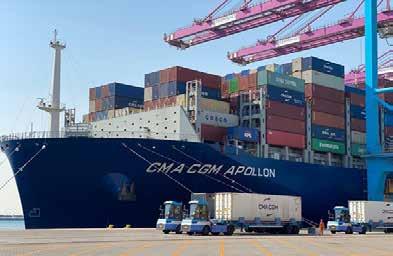
acknowledging that a full “Year of Culture” requires extensive planning and might be premature, he said it is an idea the embassy is keen to explore, particularly inspired by Qatar’s current cultural year with Latin American countries, which he described as impressive.
The envoy cited a specific cultural ambition for the near future: an exhibition designed to resonate deeply with Qatari heritage. “My ambition is also to organise a number of exhibitions with our Qatari friends, [one] that would highlight the Polish heritage and success story in terms of breeding pure-blood Arabian horses,” he said.
“The key is in not spending time, but in investing it,” said the famous author, businessman and educator Stephen R. Covey. Managing to optimise the use of one’s time is the key to a successful career. In a complex and unstoppable logistics arena, it becomes crucial to use time efficiently. Global Supply Chain Editor, Abigail Mathias speaks to Rachid Labrik, Vice President of MEA at Slimstock and gauges how he juggles everyday tasks while always staying ahead of the curve.
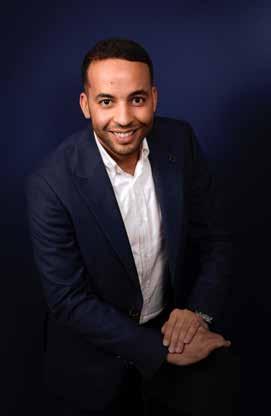
Abigail Mathias: day like?
Are you a coffee or tea person? If so, how many cups a day?
I enjoy both—coffee in the morning and tea throughout the day, usually not more than five cups. But honestly, water is my go-to.
What do you do to keep yourself
I’m into sports like tennis, padel, badminton, and hiking. Recently, I’ve started diving too. I often get the team involved in these activities. It’s great for staying fit and also helps clear my mind and push my limits. It is also a nice way to blend with the team. Plus, it’s a fun way to build resilience and sharpen skills.
AM: What time do you break for lunch?
RL: Lunch times can vary, but I usually take a break between 1 pm and 2 pm. It’s important to refuel and keep the energy up for the rest of the day.
AM: When and to which location is your next holiday?
RL: The world is my destination. I’d like to challenge myself while emerging into adventures and exploring new destinations. If there’s a stunning mountain range, you’ll probably find me hiking the trails.
AM: What advice would you’d give other business professionals juggling time?
RL: Prioritise your tasks and stay organised. Master the art of delegation and never hesitate to ask for support. But most importantly: carve out some time for self-care and if it is just 10 minutes a day. Success isn’t just about hard work and long-term goals, but also about maintaining your health and preserving your well-being. Keep a healthy balance.
AM: When do you catch up on world/ business events?
Rachid Labrik: What is a typical day ? I like to kick off my day with a workout to get the energy flowing. Followed by a high protein home-made breakfast. Then it’s off to the office where I dive into my three big priorities of the day and catch up with my team. After lunch, I focus on strategic stuff and keep an eye on what’s happening in the industry. It’s a mix that keeps things interesting and helps us stay ahead.
AM: Around what time of day do you wrap up work at the office?
RL: I aim to finish up around 6:30 pm to 7 pm, but it depends on what’s going on. I try to balance work and life to avoid burnout.
AM: How do you unwind in the evening?
RL: I unwind by practicing mindfulness, playing sports, catching up with friends, or reading a good book. I also love diving into inspiring quotes—they help me gain clarity and a deeper understanding of life.
RL: I don’t have a set schedule for staying informed. I like to keep an entrepreneurial mindset, always staying alert and ready to learn and adapt. It’s about being aware and making the most of every opportunity to stay ahead.
AM: To me and our association Global Supply Chain Magazine is…
RL: A vital resource that keeps us informed about the latest trends and innovations in the supply chain industry. It’s a trusted partner that helps us showcase the amazing work we do at Slimstock to industry experts.
